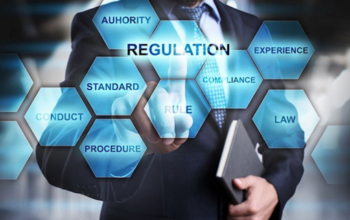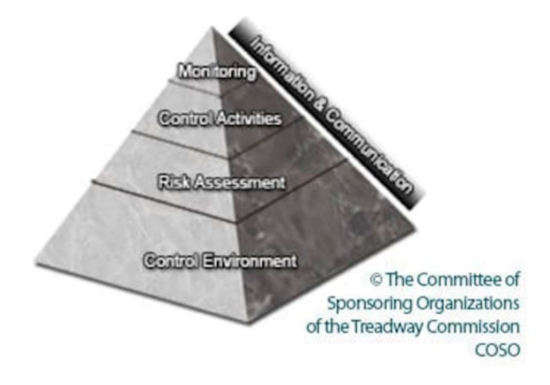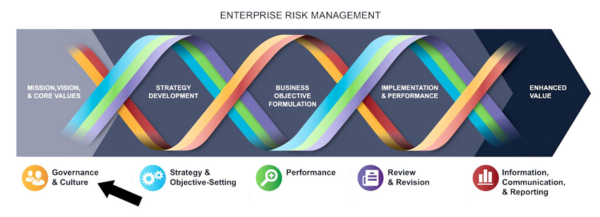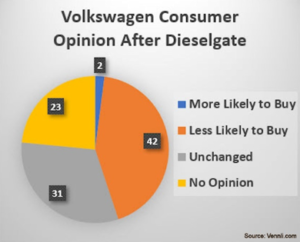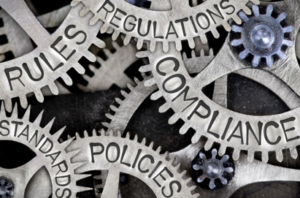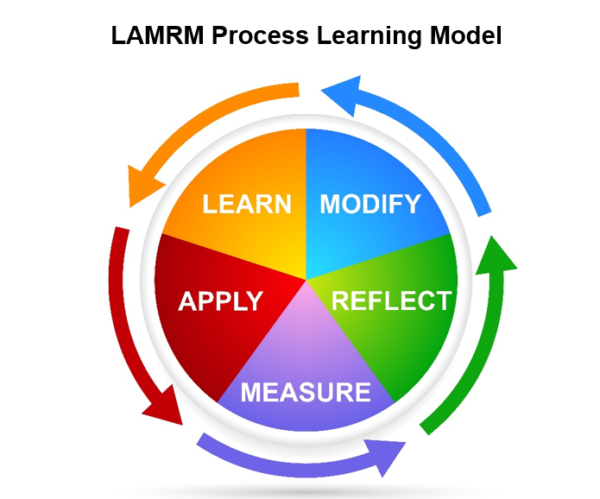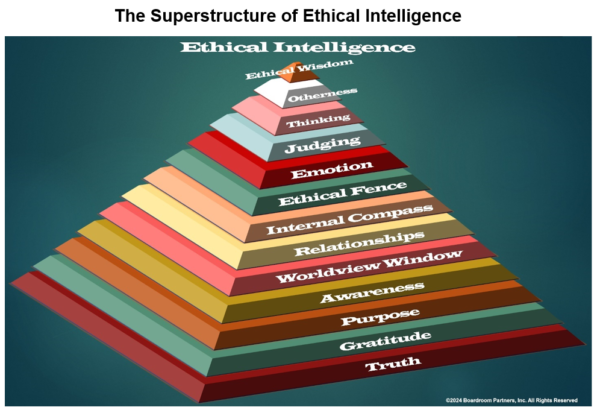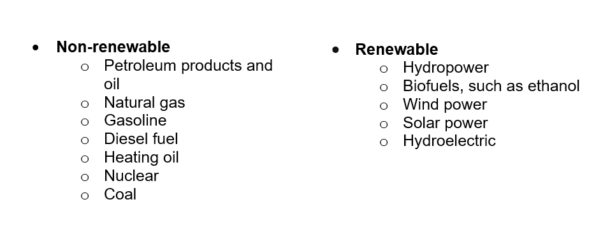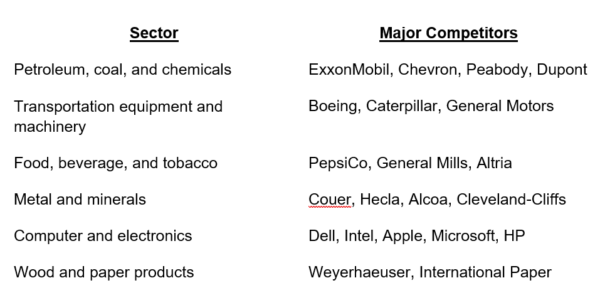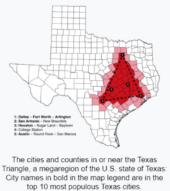Ethical Intelligence Training Program
Insert (CLP) Photograph on Web Page (Align Right)
The Appleton Greene Corporate Training Program (CTP) for Ethical Intelligence is provided by Mr. Opincar Certified Learning Provider (CLP). Program Specifications: Monthly cost USD$2,500.00; Monthly Workshops 6 hours; Monthly Support 4 hours; Program Duration 36 months; Program orders subject to ongoing availability.
Personal Profile
Mr/Ms Surname is a Certified Learning Provider (CLP) at Appleton Greene and he/she has experience in department 1, department 2 and department 3. He/She has achieved a Qualification 2, Qualification 2 and Qualification 3. He/She has industry experience within the following sectors: industry 1; industry 2; industry 3; industry 4 and industry 5. He/She has had commercial experience within the following countries: Country 1, or more specifically within the following cities: City 1; City 2; City 3; City 4 and City 5. His/Her personal achievements include: personal achievement 1; personal achievement 2; personal achievement 3; personal achievement 4 and personal achievement 5. His/Her service skills incorporate: service skill 1; service skill 2; service skill 3; service skill 4 and service skill 5.
To request further information about Mr. Opincar through Appleton Greene, please Click Here.
(CLP) Programs
Appleton Greene corporate training programs are all process-driven. They are used as vehicles to implement tangible business processes within clients’ organizations, together with training, support and facilitation during the use of these processes. Corporate training programs are therefore implemented over a sustainable period of time, that is to say, between 1 year (incorporating 12 monthly workshops), and 4 years (incorporating 48 monthly workshops). Your program information guide will specify how long each program takes to complete. Each monthly workshop takes 6 hours to implement and can be undertaken either on the client’s premises, an Appleton Greene serviced office, or online via the internet. This enables clients to implement each part of their business process, before moving onto the next stage of the program and enables employees to plan their study time around their current work commitments. The result is far greater program benefit, over a more sustainable period of time and a significantly improved return on investment.
Appleton Greene uses standard and bespoke corporate training programs as vessels to transfer business process improvement knowledge into the heart of our clients’ organizations. Each individual program focuses upon the implementation of a specific business process, which enables clients to easily quantify their return on investment. There are hundreds of established Appleton Greene corporate training products now available to clients within customer services, e-business, finance, globalization, human resources, information technology, legal, management, marketing and production. It does not matter whether a client’s employees are located within one office, or an unlimited number of international offices, we can still bring them together to learn and implement specific business processes collectively. Our approach to global localization enables us to provide clients with a truly international service with that all important personal touch. Appleton Greene corporate training programs can be provided virtually or locally and they are all unique in that they individually focus upon a specific business function. All (CLP) programs are implemented over a sustainable period of time, usually between 1-4 years, incorporating 12-48 monthly workshops and professional support is consistently provided during this time by qualified learning providers and where appropriate, by Accredited Consultants.
Executive summary
Ethical Intelligence
Organizational culture is a force as fierce as fire. A controlled fire is a force of creation. It can conquer, calm, and create. An uncontrolled fire is a force of destruction. It can damage, disrupt, and destroy. Organizational culture is an all-consuming force. Controlling it creates an environment within which ethical conduct and organizations flourish. It is the “hidden hand” controlling organizations.
When organizational culture is neglected and uncontrolled, it creates an environment within which the survival of the fittest devours all within its path, including the C-Suite and the board of directors. Enron’s infamous “rank and yank” practice exemplified a “burn-it-down” organizational culture. Here are two additional recent examples of the destructive power of organizational cultural fire.
Credit Suisse. “Your honor, I am sorry for what I have done. My terrible mistake will live with me for the rest of my life.” Kareem Serageldin. “You failed in doing what was right, and for this, I have to punish you.” Judge Hellerstein. This exchange occurred between Kareem Serageldin, former Credit Suisse banker, upon hearing his prison sentence for defrauding the bank of $2.7 billion. Unfortunately, this was not the first, nor the last, ethical lapse involving a member of the Credit Suisse organization.
Since 1986, Credit Suisse has had nearly a dozen public ethical crises resulting in multi-billions of dollars of losses, fines, penalties, and significant reputational destruction. Many organizational members, such as Mr. Serageldin or other loosely associated organizational members, have been imprisoned for various crimes. In 2022, the Chairman and CEO resigned because he ignored the COVID quarantine rules he ordered all other organization members to observe. Finally, in March 2023, Credit Suisse failed and was taken over by UBS.
Wells Fargo. Once upon a time, investors, customers, and others regarded Wells Fargo & Co. as an organizational culture gold standard. Its reputation was spotless, and its profitability and return on investment were nearly unparalleled, earning the bank the highly trusted title. Then, a 2013 Los Angeles Times article about certain alleged fraudulent Wells Fargo sales practices led to a nearly overnight fall from grace, from which the bank has not yet recovered, as the nearby chart shows.
Noted former Wells Fargo investor Warren Buffett once commented, “It takes 20 years to build a reputation and five minutes to ruin it. If you think about that, you’ll do things differently.”
Background
The dawning of the 21st century and its cascade of business scandals compelled many to think about doing things differently. The business failures of that time thrust an eight-decade era of rules, regulations, ethics codes, and legislation under the hot lights of public scrutiny. The investing public, employees, suppliers, and other stakeholders were angry and demanded answers, especially from regulators and politicians.
Given the regulatory environment, Enron’s collapse should not have happened. Neither should have HealthSouth, WorldCom, and others. Since the Security and Exchange Commission’s (SEC) founding in 1934, an impressive regulatory regime has evolved to prevent such business failures/scandals and their aftermath. Nonetheless, the carnage happened, especially to those who could least afford it.
The Enron failure, accompanied by Arthur Andersen’s demise, was both dramatic and devastating to a nation still reeling from the 911 disaster and its fallout. The political clamor to “fix the problem” resulted in sweeping legislation that spawned the Sarbanes Oxley Act (SOX) of 2002 and the creation of the Public Company Accounting Oversight Board (PCAOB).
Those two events substantially complicated an already giant regulatory and compliance framework labyrinth. There was great hope that those steps would finally solve the problem of unethical behavior in corporate America.
Now, 20+ years later, there is widespread agreement that SOX and PCAOB have been net positives in holding public accounting firms and their clients accountable for more robust internal controls and improvements in financial reporting.
Yet, during the first ten years after SOX became law, thousands of executives were tried and convicted of the frauds SOX was designed to prevent. And now, we continue seeing business scandals and corporate failures such as Theranos, Nikola, Volkswagen, and others.
During these subsequent 20+ years, many have started asking whether laws, regulations and even lengthy prison sentences work in stemming corporate ethical lapses. Harvey Pitt, former SEC Chief, was once asked that very question by a UK journalist. “Does regulation work?” Pitt’s answer was, “Don’t ask me!”
So, does regulation work?
There is not a yes or no answer to the question. A nuanced answer is that regulation is necessary, but more is needed. Since 1992, however, a parallel initiative to addressing this seemingly intractable problem of organizational ethical lapses, and that initiative is Enterprise Risk Management.
Enterprise Risk Management
Enterprise risk management (ERM) is the culture, capabilities, and practices that organizations integrate with strategy setting and apply when they carry out that strategy to manage risk in creating, preserving, and realizing value. In 1992, the Committee of Sponsoring Organizations of the Treadway Commission (COSO) created and promulgated a framework known as the “Internal Control – Integrated Framework.” The following Framework was intended to help companies, regardless of industry and size, measure the efficacy of their internal controls.
The base of this pyramid model, Control Environment, is organizational culture. The organizational culture is the milieu within which risk assessments, control activities, and monitoring operate. Since the publication of this original model in 1992, COSO has updated and expanded the model three times: in 2004, 2013, and 2017. The DNA view of the current model is as follows:
Throughout the COSO model’s iterations and improvement, organizational culture’s primacy has persisted and is now accompanied by governance. Organizational culture is still the foundation of ERM because organizational governance is a product of and is informed by organizational culture.
Why should you care about this?
The Ethical Culture Imperative
Why is this important? Or why should you care about your organization’s culture? Whether you are a leader, manager, or single contributor, you should prize an ethical culture because such cultures produce more value, reduce enterprise risk, enhance and protect your brand, deliver greater stakeholder engagement, enhance innovation, increase productivity, are more naturally compliant, and are easier to govern.
• Ethical cultures produce more value. During the past several decades, scholars and practitioners have discovered that the single distinguishing characteristic between organizations that positively contribute to society and those that do not is an ethically intelligent (ethical) organizational culture. No matter how it is measured, EVA (economic value added), EPS (earnings per share), cash flow, share price, P/E (price earnings) ratio, return on equity, cost of capital, return on assets, market capitalization, ethical organizational cultures create more value. In a recent 2022 survey of 1,348 North American executives, 92% believed an ethical organizational culture increased firm value.
• Ethical cultures reduce enterprise risk. Every organization faces internal and external risks, and in today’s 24/7/365 volatile, uncertain, complex, and ambiguous business world, risks are everywhere and rising. Whether cyber intrusions, online and offline theft, sexual harassment, organizational wet work and plausible deniability, or aggressive accounting, an ethically intelligent organizational culture is the first and most vital line of defense against such toxic activity. Enterprise risk management experts, practitioners, and scholars alike have experienced and demonstrated that a laser focus on workplace ethics is instrumental in reducing enterprise risk.
• Ethical cultures enhance and protect your brand. The idea that your culture is your brand has existed for a long time. A brand-enhancing example is Southwest Airlines (LUV) when Herb Kelleher was the CEO. During Kelleher’s tenure, LUV had a free-spirited, happy culture where everyone aspired to have a good time and treat passengers that way. And as a result, LUV’s brand was that of a happy, fun-loving flying experience. After Kelleher died in 2019, the organization’s culture began changing. During the 2022 holiday season, consumers could see the effects of the culture change. LUV’s reputation was seriously degraded because of flight cancellations and employee discontent.
The Volkswagen “Dieselgate” scandal offers an example of culture-driven brand damage. In 2015, information that Volkswagen had created and installed software in its diesel-powered cars that enabled cheating on emissions tests became public. The negative public reaction was almost instant, and the damage to Volkswagen’s brand followed. As depicted in the nearby chart, Volkswagen’s share price declined, and the consumer public’s perception of its brand plunged. Researchers later discovered that Volkswagen’s emissions incident also reduced the general demand for diesel-powered cars.
• Ethical cultures produce greater stakeholder engagement. Organizations do not live in vacuums. According to stakeholder theory (SA), every organization has multiple stakeholders whose perceptions, goodwill, and generosity are keys to organizational success. Also, according to SA, critical stakeholder groups include customers, creditors, employees, investors, regulators, suppliers, and host communities, to name a few.
Whether you accept this broad stakeholder perspective or adhere to a narrower view of your organization’s stakeholders (e.g., only investors and employees), an ethical organizational culture produces positive engagement results. In a recent Employee Relations Law Journal article, Lian and Crowley noted.
With increased visibility into the actions of companies and their leaders through social media and job review websites like Glassdoor and Blind, the need for ethical conduct by leaders has never been more critical. Leaders’ behavior that could once be excused or overlooked can quickly ‘go viral’ and be picked up by leading news services. Companies and their boards can take essential steps to create conditions that help facilitate ethical leadership by top executives.
Employees who have “bought into” your organization’s mission, vision, and values are more productive and innovative than those whose sole motivation is collecting a paycheck.
• Ethical cultures produce more innovation. Innovation is something new or a change made to an existing product/service, idea, or market. Most organizations must innovate or fall into stasis and die. At first glance, the connection between an ethically intelligent (ethical) organizational culture and innovation is unclear. Multiple quantitative and qualitative research studies have shown a positive connection. Ethical cultures produce more innovation. If you stop and think about it, the reasons become apparent. Ethical cultures are more open and transparent, which fosters sharing and unrestricted dialog across the organization. Ethical cultures are more collaborative. People are more likely to trust others in the organization. To encourage innovation in your organization, ensure an ethically intelligent organizational culture.
• Ethical cultures increase productivity. Increased productivity refers to increased process outputs from fixed or reduced process inputs, expressed as a formula: Productivity = Units of Output/Units of Input. In most organizations, the most important input is labor, especially in a knowledge/service business. Employees are key to increased productivity, and organizational culture is crucial to employee behavior. Here is an example
Mary is responsible for maintaining an essential departmental process that management uses to price a range of commodities daily. Mary often needs help to complete the work each day due to cyberloafing, a practice the organizational culture tolerates. Management hires a second person to help Mary. John begins work, and the process is working on a timely basis again. Over time, John picks up the cyberloafing practice because the culture tolerates it. Now, two people are marginally doing the work that could be completed by one person who does not cyberloaf. An ethically intelligent culture would not allow this situation to begin or persist.
Ethical cultures encourage—and demand—employees to do the right thing even when no one is looking. It’s called an R-Squared Cultural Behavior, or right-thinking, right-acting, a behavior modification process this course imparts to its students.
• Ethical cultures are more naturally compliant. For several years, compliance has become an increasingly popular “buzz” word in the corporate lexicon. As the regulatory state has grown, so have the regulations with which organizations must comply. So much so that countless large organizations have hired hundreds of “compliance” professionals to deal with the growing “compliance” burden. Many have established “compliance” departments.
Unlike other organizational governance structures, such as values statements and ethics codes, the compliance mosaic is external and imposed upon existing internal governance authorities, like the board of directors. The board “complies” with the compliance mosaic because they must, which often results in the “compliance” department operating almost as an external entity. It is superimposed on existing governance initiatives, usually at a substantial additional cost.
Ethical organizational cultures, consisting of ethically intelligent organizational members led by ethically intelligent leaders and managers are naturally compliant because right-thinking, right-acting is the required in an R-Squared organizational culture. Therefore, such an organizational culture is naturally compliant because “complying” is the right thing to do.
• Ethical cultures are easier to govern. Since antiquity, when humans began living in communities, leaders have known and understood the critical importance of culture to governing. The Roman Empire (Empire), one of the largest and longest-lived world empires, was no exception. At its zenith, Rome occupied most of the then-known European, Asian, Persian, and North African land masses. From 27 BCE through 180 CE, known as Pax Romana (the Roman peace), the entire Roman Empire enjoyed over two centuries of peace, tranquility, and prosperity. The Romans accomplished this seemingly impossible task through an ambitious program of required Roman acculturation.

The Empire protected its provinces and allowed them a high level of self-governance in exchange for accepting Empire taxation, military occupation, and indigenous culture replacement with Roman cultural norms. One could argue about the ethics of the Empire, but there is no argument that culture enables the effective leadership of organizations of any size. Create ethical organizational cultures led by ethically intelligent leaders and observe the ease with which organizations are governed. This is an important revelation because today, the previously tolerant era of ethically challenged organizational cultures is over.
A Time of Reckoning
After nearly a century of laws, regulations, and professional ethics codes, organizational stakeholders of all stripes have had it with “challenged” organizational cultures. Since 1933, Congress and statehouses have repeatedly reacted to the ethical misbehavior of organizational leaders by conducting investigations and passing legislation, which was accompanied by multiple thousands of pages of new regulations and rules.
The financial scandals at the turn of the 21st century resulted in the Sarbanes-Oxley Act (SOX) that mandated stiff penalties, even extending to executive incarceration. Since the passage of SOX in 2002, thousands of executives have been imprisoned for violating its provisions. Unfortunately, unethical activities have scarcely abated.
Einstein once defined insanity as doing the same thing repeatedly but expecting a different outcome. It is time for a different solution that does not rely on more reporting and enforcement. Stakeholders demand to know what kinds of ethical cultures boards of directors and professional managers create in their organizations.
The era of “we’ll do better next time” is over. Tell that to a Credit Suisse shareholder who lost her retirement because of the bank’s failure. Or assure a mother in East Palestine, Ohio, whose child is deathly ill from chemical toxins dumped into her town by a train derailment that “next time will be different.” There will be no “next time.” Stakeholders are demanding ethical organizational cultures.
What kind of culture exists in your organization? Do you lie to customers? Do you shoot straight with employees? Are your suppliers paid on time, or do you take advantage of them? If you run a railroad, trucking firm, or shipping operation, is safety a priority, or is it the bottom line? Is everyone in the organization living its values?
How do you know? There are not enough surveillance cameras, auditors, or human resource assessments that can answer these questions. As the Romans proved millennia ago, the only way to ensure the correct answer to those questions is by creating and nurturing an ethically intelligent culture where right-thinking and right-acting are the default behaviors.
Course Overview
This course teaches you and your organization how to create an ethical culture by learning and applying the principles and practices of ethically intelligent behavior and leadership to cultural transformation. Specifically, this course is an iterative three-year ethical-organizational-culture-transformation process based on the principles and practices of ethical intelligence and adult learning theory, using the following LAMRM process.
The LAMRM process is iterative, meaning it is repeated as many times as necessary for student mastery. The operations within the LAMRM process include:
• LEARN the theoretical content presented within the module
• APPLY the module theory within the student’s professional/personal domain
• MEASURE the results of the application
• REFLECT on theory application considering the outcome(s)
• MODIFY behavior based on the reflection
The learner repeats the iteration as many times as necessary for the student to master and internalize the module content and begin achieving the desired outcomes. Iterations after the first can be synchronous or asynchronous, meaning the learner can repeat the module before moving to the next module or move on and return as desired.
Because of synergy, ethical intelligence is a whole that equals more than the sum of its parts. We break ethical intelligence into 13 parts or levels for simplicity and explanation. Nevertheless, each succeeding tier depends on the previous tier for completion and application. For example, referring to the Superstructure depicted nearby, having an operational, ethical fence or line in the sand depends on an operational internal compass pointing in the direction of rightness or wrongness. Although we cover this superstructure in detail in Module Six, its contents permeate this course. The following is a title summary of the course modules.
Curriculum
Ethical Intelligence – Part 1- Year 1
- Part 1 Month 1 Setting Foundations
- Part 1 Month 2 Ancient Origins of Ethical Intelligence
- Part 1 Month 3 Ethical Intelligence and The Renaissance
- Part 1 Month 4 Postmodernism and Ethical Intelligence
- Part 1 Month 5 Meaning and Sense-Making
- Part 1 Month 6 The Superstructure of Ethical Intelligence
- Part 1 Month 7 Truth Is the Foundation of Ethical Intelligence
- Part 1 Month 8 Gratitude Is the Currency of The Universe
- Part 1 Month 9 Purpose Drives Vision, Mission, and Values
- Part 1 Month 10 Awareness (Heart Sanctuary
- Part 1 Month 11 Worldview Window (Do You See Me?)
- Part 1 Month 12 Primal (Prototype) Relationship
Ethical Intelligence – Part 2- Year 2
- Part 2 Month 1 Tangled Relationship Webs (Including AI)
- Part 2 Month 2 Finding True North and The Internal (Moral) Compass
- Part 2 Month 3 Ethical Fence and Comfort Zone
- Part 2 Month 4 Neuroscience and The Psychology of Emotions
- Part 2 Month 5 Irrationality and Emotional Intelligence
- Part 2 Month 6 Adjudicator and The Sweatbox
- Part 2 Month 7 Ethically Intelligent (Holistic) Thinking
- Part 2 Month 8 Me Versus “You,” A Struggle for Differentiation
- Part 2 Month 9 Possessive Self, Hostile Otherness, Postmodern Ethics
- Part 2 Month 10 Aristotle’s Wisdom and The Beauty of Just Outcomes
- Part 2 Month 11 The Hidden Hand of Culture Encounters Its Termites
- Part 2 Month 12 Caustic Corrosion of Cultural Hypocrisy
Ethical Intelligence – Part 3- Year 3
- Part 3 Month 1 Organizational Wet Work and Plausible Deniability
- Part 3 Month 2 Organizational Omertà and The Coverup
- Part 3 Month 3 Toxic Triangle (Arrogance, Entitlement, Hubris)
- Part 3 Month 4 Shooting Messengers and Blocking Communications
- Part 3 Month 5 Pressure-To-Perform and The Slippery Slope
- Part 3 Month 6 R-Squared Cultural Behavior
- Part 3 Month 7 Great Leaders Are Great Actors
- Part 3 Month 8 The Captivity Cloister and Innocuous Imperial Box
- Part 3 Month 9 Boards of Directors, Agency, and Governance
- Part 3 Month 10 Perceived Hostile Otherness and Lonely Unease
- Part 3 Month 11 The Heart of ESG (Environmental, Social, Governance
- Part 3 Month 12 Module 36: The Future of Leadership Is Gardening
Program Objectives
The following list represents the Key Program Objectives (KPO) for the Appleton Greene Ethical Intelligence corporate training program.
Ethical Intelligence – Part 1- Year 1
- Part 1 Month 1 Setting Foundations – Objective: Introduce this training program and, using The Committee of Sponsoring Organizations of the Treadway Commission (COSO) framework as a guide, explore the foundational role ethically intelligent leadership and organizational culture play in managing enterprise risk.
Content Summary
COSO issued the Enterprise Risk Management: Integrating Strategy and Performance Framework (Framework) for managing enterprise risk in 2004 and updated it in 2017. Within the Framework, organizational culture (which flows from ethically intelligent leadership) is cited as the foundation of Enterprise Risk Management (ERM).
That Framework guides the integration of the contents of this training program into organizational processes. This module provides a high-level overview of this program, explaining how all the pieces fit together.
Using case studies, original research, and Fortune 1000 executive testimonials, we explore the critical importance of organizational leadership and culture in guiding organizations through the minefields of worldwide enterprise risks created by a volatile, uncertain, complex, and ambiguous (VUCA) business environment.
Learning Outcomes
After completing this module, learners will be able to:
• Explain the COSO Framework and apply the COSO Cube to the learner’s organization’s risk profile, especially in the learner’s area of responsibility.
• Write a brief essay citing three ways this training can enhance the learner’s leadership and organizational contribution.
• Write a brief essay describing the role of organizational culture in enterprise risk management, citing appropriate and authoritative sources.
Implicated Organization Processes
Ethics and ETHICALLY INTELLIGENT THINKING must permeate every organizational process and should infuse behavior at all levels of the organization. The following higher-order (core) processes are a suggested starting point.
After completing this module, learners can apply its content through these processes:
• Leadership training and mentoring
• Procurement policies and procedures
• Organizational values creation and training
• Financial reporting compliance
- Part 1 Month 2 Ancient Origins of Ethical Intelligence – Objective: Discover the ancient origins of human ethical intelligence and enumerate its nomenclature.
Content Summary
We introduce the ancient origins of human ethical intelligence and its nomenclature and influence. We trace its 5,000-year history, beginning with the first written evidence of human ethical intelligence, chiseled into the great pyramid at Giza, up to the advent of the Renaissance.
This is the first of four modules designed to create a foundational awareness of the ancient origins and the five-millennia evolution of humanity’s traditions and thought processes about ethics and ethical behavior. This background enhances converting “head” knowledge into a “heartfelt” commitment to ethical behavior.
Knowing how society reached these norms of expected ethical conduct transforms sterile rules-based ethics codes into action-producing principles of organizational behavior.
Learning Outcomes
After completing this module, learners will be able to:
• Articulate the ancient origins and WISDOM of human ethical intelligence and cite three ethically intelligent exemplars, explaining their contributions.
• Describe the fundamental nomenclature of human ethical intelligence by relating it to everyday life.
• Write a brief essay relating the intersection of human ethical intelligence with humanity’s spiritual and religious traditions, citing appropriate and authoritative sources.
Implicated Organization Processes
Ethics and ETHICALLY INTELLIGENT THINKING must permeate every organizational process and should infuse behavior at all levels of the organization. The following higher-order (core) processes represent a suggested starting point.After completing this module, learners can apply its content through these processes:
• Leading the organization
• Managing the organization
• Accounting revenue recognition, especially IP firms
• Financial reporting to diverse stakeholders
• Risk management, especially evaluating the length and breadth of supply chain policies and procedures
- Part 1 Month 3 Ethical Intelligence and The Renaissance – Objective: Explore the diminishment of human ethical intelligence and its influence during the Renaissance.
Content Summary
We examine the diminishment of human ethical intelligence during the Renaissance Period. Our examination includes an intimate look at the influence of philosophy, the arts, and emerging scientific thought on the fading importance of human ethical intelligence, which mirrored the waning influence of the Roman Catholic Church and its corrupt casuistry practices.
This is the second of four modules designed to create a foundational awareness of the ancient origins and the five-millennia evolution of humanity’s traditions and thought processes about ethics and ethical behavior. This background enhances converting “head” knowledge into a “heartfelt” commitment to ethical behavior.
Knowing how society reached these norms of expected ethical conduct transforms sterile rules-based ethics codes into action-producing principles of organizational behavior.
Learning Outcomes
After completing this module, learners will be able to:
• Explain the effects of casuistry on the waning influence of human ethical intelligence in the conduct of human affairs.
• Compare and contrast the strands of scientific thought and philosophy of the Renaissance and apply the knowledge to the slow demise of human ethical intelligence as a viable human thought process.
• Write a short essay that articulates the exemplars (at least three) of the Renaissance and the impact each had on human thought, especially the scientific method, citing appropriate and authoritative sources.
Implicated Organization Processes
Ethics and ETHICALLY INTELLIGENT THINKING must permeate every organizational process and should infuse behavior at all levels of the organization. The following higher-order (core) processes represent a suggested starting point.
After completing this module, learners can apply its content through these processes:
• Board and C-Suite leadership programs
• Human resources’ adoption and use of psychometric testing
• Revenue accounting and its theoretical underpinnings
• Marketing content creation and placement
• Risk management, applying the COSO framework
- Part 1 Month 4 Postmodernism and Ethical Intelligence – Objective: Describe post-modernistic thought’s debilitating effects on present-day ethical thinking and judging.
Content Summary
We chronicle the fading understanding of human ethical intelligence and its influence on postmodern human society. We identify this lost knowledge’s importance to our understanding of ethics and ETHICAL JUDGING. We analyze the current adherence to rules-based ETHICAL JUDGING processes rather than the holistic, ethically intelligent practice of fairness-of-outcomes ETHICAL JUDGING. We also administer the eQuu® Survey Experience.
This is the third of four modules designed to create a foundational awareness of the ancient origins and the five-millennia evolution of humanity’s traditions and thought processes about ethics and ethical behavior. This background enhances converting “head” knowledge into a “heartfelt” commitment to ethical behavior.
Knowing how society reached these norms of expected ethical conduct transforms sterile rules-based ethics codes into action-producing principles of organizational behavior.
Learning Outcomes
After completing this module, learners will be able to:
• Explain the importance of the human collective unconscious and its relationship and influence on current-day human interactions, specifically the trust deficit between the human self and the other.
• Discuss the impact of science, including quantum mechanics, on our understanding of present-day rules-based ETHICAL JUDGING processes.
• Write a short essay naming three exemplars of the postmodern period and their contributions to our understanding of human ethical intelligence.
Implicated Organization Processes
Ethics and ETHICALLY INTELLIGENT THINKING must permeate every organizational process and should infuse behavior at all levels of the organization. The following higher-order (core) processes represent a suggested starting point.
After completing this module, learners can apply its content through these processes:
• Board and C-Suite adoption of rules-based behavioral constructs
• Human resources’ application of “scientific-based” employee evaluations
• Accounting for sales commissions• Truthful internal budgeting protocols
• Risk management, especially horizontal communication stovepipes
- Part 1 Month 5 Meaning and Sense-Making – Objective: Explain how humans construct meaning from perceived reality and then extend the explanation to human sense-making.
Content Summary
We enter the domains of human psychology and neuroscience as we explore the internal human mechanisms for constructing meaning and sense-making. Humans are hardwired to engage in this process. As we consider how humans make meaning, or sense, of life as it unfolds, we discover and discuss a mosaic of factors contributing to the whole of it.
This is the fourth of four modules designed to create a foundational awareness of the ancient origins and the five-millennia evolution of humanity’s traditions and thought processes about ethics and ethical behavior. This background enhances converting “head” knowledge into a “heartfelt” commitment to ethical behavior.
Knowing how society reached these norms of expected ethical conduct transforms sterile rules-based ethics codes into action-producing principles of organizational behavior.
Learning Outcomes
After completing this module, learners will be able to:
• Articulate the science behind human meaning and sense-making and explain the difference between the two.
• Explain the importance of meaning and sense-making to human ethical intelligence, especially considering a more diverse, mobile, and educated society.
• Write a short essay that applies this knowledge to discerning the relationships, identifying stakeholders, and outlining the potential outcomes of an ethical dilemma resolution, citing appropriate and authoritative sources.
Implicated Organization Processes
Ethics and ETHICALLY INTELLIGENT THINKING must permeate every organizational process and should infuse behavior at all levels of the organization. The following higher-order (core) processes represent a suggested starting point.
After completing this module, learners can apply its content through these processes:
• Engineering and innovation in new product/service creations
• Human resources’ on/offboarding policies/procedures
• Accounting research and transaction recordation
• Selecting diverse financing sources
• Procurement and DEI outreach initiatives
- Part 1 Month 6 The Superstructure of Ethical Intelligence – Objective: Enumerate the superstructure of ethical intelligence, including its 13 domains, and relate that knowledge to measuring the maturity of ethical intelligence in humans.
Content Summary
Using the Ethical Intelligence Pyramid, we provide a broad perspective of the ethical intelligence structure. In that overview, we discuss its domains—TRUTH, GRATITUDE, PURPOSE, AWARENESS, WORLDVIEW WINDOW, RELATIONSHIPS, INTERNAL COMPASS, ETHICAL FENCE, EMOTION, SWEAT (ETHICAL JUDGING), ETHICALLY INTELLIGENT THINKING, OTHERNESS (self/other interactions) and WISDOM.
This module is all about building superstructure. We define ethical intelligence as the intellectual capacity and framework for judging matters of equity in relationships. We assert that decision-making and judging don’t refer to the same phenomenon. We introduce the human Self as the self-aware, thinking you. The Other is all else. Finally, we review and explain the silver-level results report from the eQuu® Survey Experience.
Learning Outcomes
After completing this module, learners will be able to:
• Describe and explain the interrelationships of the 13 domains of human ethical intelligence.
• Differentiate between a person’s ethical intelligence maturity score and that person’s ethical conduct.
• Write a short essay describing the meaning of the personal ethical intelligence maturity score they earned from taking the eQuu® Survey Experience.
Implicated Organization Processes
Ethics and ETHICALLY INTELLIGENT THINKING must permeate every organizational process and should infuse behavior at all levels of the organization. The following higher-order (core) processes represent a suggested starting point.
After completing this module, learners can apply its content through these processes:
• Leadership, creating and leading the strategic success elements
• Human resources’ psychometric test use and measurements
• Accounting, managing external auditors
• Procurement, specifically contract management
• Risk management, especially supply chain length, and ethics
THIRTEEN TIERS OF ETHICAL INTELLIGENCE
The next thirteen modules involve a deep dive into the ethical intelligence superstructure. We consider each tier of the superstructure and how it contributes to the holism of human ethical intelligence.
- Part 1 Month 7 Truth Is the Foundation of Ethical Intelligence – Objective: Compare and contrast the TRUTH concept and its meaning through the ages and why TRUTH forms the foundation of human ethical intelligence.
Content Summary
We introduce the concept of TRUTH as it has been understood through the ages, stressing the lack of societal agreement on a universal definition of TRUTH. We examine TRUTH and lying through multiple lenses—scholarly, cultural, and practical. We introduce such leading scholars as Aldert Vnj, Warren Shibles, Sissela Bok, Linda Coleman, Paul Kay, and Joseph Kupfer.
We compile the multiple definitions of Truth into an ethically intelligent Truth definition. Using that definition, we explore how truth-telling organizational cultures endure, thrive, and create long-lasting value for all stakeholders.
Using case studies and Fortune 1000 executive testimonials, we explore the abiding “truth” that neither ethically intelligent leaders nor ethically intelligent organizational cultures lie at any time for any reason.
Learning Outcomes
After completing this module, learners will be able to:
• Write a short essay expressing the learner’s understanding of TRUTH and lying and contrast that understanding with the seven definitions presented in this module.
• Articulate why truth-telling is the foundation of human ethical intelligence, citing appropriate and authoritative sources.
• Write a short essay describing an incident in the learner’s, or an associate’s, professional career wherein lying resulted in organizational losses. Describe the aftermath, if appropriate.
Implicated Organization Processes
Ethics and ETHICALLY INTELLIGENT THINKING must permeate every organizational process and should infuse behavior at all levels of the organization. The following higher-order (core) processes represent a suggested starting point.
After completing this module, learners can apply its content through these processes:
• Marketing content creation and venue placement
• Sales generation and tracking, customer relationship management
• Accounting for revenues, including shipments and sales commissions
• Financial planning and forecasting, especially model creation, and testing
• Procurement, supply chain sourcing, and slave labor certifications
- Part 1 Month 8 Gratitude Is the Currency of The Universe – Objective: Discover the concept of GRATITUDE and thanksgiving as it has been understood throughout the ages and explain its importance to creating an ethically intelligent life and organizational culture.
Content Summary
GRATITUDE is the currency of the universe. It is one of the human virtues nearly universally accepted and applauded throughout the world’s societies. Grateful organization members are the core of an ethically intelligent organizational culture. Grateful people are more joyful, welcoming, helpful and complain less. Team members thankful for belonging to the organization are more engaged and productive.
We introduce the spectrum of GRATITUDE understanding through the lenses of psychology, social sciences, and spirituality. We present the interrelationships of GRATITUDE and the other domains of human ethical intelligence. Using case studies and Fortune 1000 executive testimonials, we explore why GRATITUDE is an essential component of an ethically intelligent leader/manager and critical in creating an ethically intelligent organizational culture.
Learning Outcomes
After completing this module, learners will be able to:
• Compare and contrast the spectrum of GRATITUDE understanding and the learner’s understanding and practice of GRATITUDE.
• Articulate why GRATITUDE is the currency of the universe and its importance to human ethical intelligence, citing appropriate and authoritative sources.
• Write a short essay describing a professional experience wherein the learner or an associate neglected expressions of GRATITUDE and what was learned from the experience
Implicated Organization Processes
Ethics and ETHICALLY INTELLIGENT THINKING must permeate every organizational process and should infuse behavior at all levels of the organization. The following higher-order (core) processes represent a suggested starting point.
After completing this module, learners can apply its content through these processes:
• Human resources’ employee retention and engagement initiatives
• Leadership training and mentoring
• Management training, mentoring, and promotion initiatives
• Cross-cultural expressions of gratitude in foreign operations
• Risk management, foreign operatives’ use of baksheesh
- Part 1 Month 9 Purpose Drives Vision, Mission, and Values – Objective: Explore the imperatives of discovering life and organizational PURPOSE and how that knowledge and understanding drive the vision, mission, values, and value creation.
Content Summary
PURPOSE is the reason something or someone exists. It is often called the “why” of something or someone. Once humans understand the “why” of their lives, many other aspects of life assume greater meaning.
When we comprehend the “why” of an organization, its vision, mission, and values come into focus, we integrate PURPOSE knowledge into the other domains of human ethical intelligence and demonstrate the synergy generated by such integration.
Using case studies and Fortune 1000 executive testimonials, we explore the power of emotionally embracing your PURPOSE. Emotions drive our lives. Purposeful emotions become passions.
Passions enable us to scale great heights and realize our dreams, which is the mark of greatness in people and organizations.
Learning Outcomes
After completing this module, learners will be able to:
• Meaningfully explore and clarify their life PURPOSE.
• Define the “why” of their organizations and compare and contrast their interpretation of their vision, mission, and values statements to the actual published organizational vision, mission, and values.
• Write a short essay about their revelations about their life’s PURPOSE OR COMPARE AND CONTRAST THEIR ORGANIZATION’S VISION, MISSION, AND VALUE pronouncements to their products from this module.
Implicated Organization Processes
Ethics and ETHICALLY INTELLIGENT THINKING must permeate every organizational process and should infuse behavior at all levels of the organization. The following higher-order (core) processes represent a suggested starting point.
After completing this module, learners can apply its content through these processes:
• Leadership strategy creation through vision, mission, and values understanding
• Human resources’ psychometric assessments
• Innovation and creative product/service initiatives
• Financial management and Economic Value Added (EVA) applications
• Marketing content creation clarity campaigns
- Part 1 Month 10 Awareness (Heart Sanctuary) – Objective: Explore the psychological and neurological underpinnings of human AWARENESS and its dependence on a properly constituted human HEART SANCTUARY.
Content Summary
The HEART SANCTUARY is a psychological, neurological, mystical, or spiritual structure where the human Self retreats for respite from the world. It’s our sacred, safe place where only we can enter. We have complete control of this space. It’s where we recharge and adjust our perspectives of the outside world.
Many names have called this sacrosanct place throughout the millennia. The philosopher John Locke called this place our sphere of “personal jurisdiction.” The philosopher Adam Smith referred to it as the “inner man.” Augustine referred to the HEART SANCTUARY as the “secret place.”
Our exploration of the HEART SANCTUARY includes an introduction to Jung’s concept of the collective unconscious and its role in creating general human AWARENESS. We explain the importance of general, situational, and personal AWARENESS to the functioning of our ethical intelligence.
Learning Outcomes
After completing this module, learners will be able to:
• Describe the differences between general, situational, and personal AWARENESS and why it is essential to understand them.
• Create a word or aspirational picture of the appearance of or conditions within their personal HEART SANCTUARY.
• Write a short essay describing a professional experience wherein the learner’s, or an associate’s, general, situational, or personal AWARENESS produced a positive or negative outcome and what the learner gleaned from the experience.
Implicated Organization Processes
Ethics and ETHICALLY INTELLIGENT THINKING must permeate every organizational process and should infuse behavior at all levels of the organization. The following higher-order (core) processes represent a suggested starting point.
After completing this module, learners can apply its content through these processes:
• Leader and follower human relations
• Manager and subordinate human relations
• Human resources offboarding policies and procedures
• C-Suite and executive perquisites and compensation
• Human resources employee counseling resource provision
- Part 1 Month 11 Worldview Window (Do You See Me?) – Objective: Explore the concept of the WORLDVIEW WINDOW and how it affects how we perceive and interpret reality, especially how we treat people of insignificance.
Content Summary
The WORLDVIEW WINDOW is a psychological, neurological, mystical, or spiritual structure through which the Self (you) views the Other (everyone else) during ETHICAL JUDGING. It is the lens through which we see the world and evaluate fairness within RELATIONSHIPS. It is a metaphor for an actual window.
Our Worldview Window provides a crystal-clear view of reality when we’re born. As infants and children, we openly welcome the world through this window. Only later in life does our Worldview Window become clouded by our acquired biases and lived experiences.
We explore our Worldview Window’s role in constructing our AWARENESS, building healthy relationships, and our ability to discern a complex web of stakeholder relationships within an ethical dilemma. We integrate this knowledge into a mosaic explaining our diversity, equity, and inclusion views.
Learning Outcomes
After completing this module, learners will be able to:
• Discern and describe the learner’s worldview and how it influences their evaluation of fairness within relationships.
• Articulate how the learner’s worldview (primarily related to insignificance or the insignificant) might cloud or close their WORLDVIEW WINDOW.
• Write a short evaluation of how the learner’s organization’s WORLDVIEW WINDOW affects its diversity, equity, and inclusion initiatives.
Implicated Organization Processes
Ethics and ETHICALLY INTELLIGENT THINKING must permeate every organizational process and should infuse behavior at all levels of the organization. The following higher-order (core) processes represent a suggested starting point.
After completing this module, learners can apply its content through these processes:
• Board, C-Suite, and executive diversity initiatives
• Human resources’ diversity, equity, and inclusion programs
• Marketing content creation and media selection
• Neurodiversity initiatives and psychometric assessments
• Sales associate selection policies and screening criteria
- Part 1 Month 12 Primal (Prototype) Relationship – Objective: Explore the PRIMAL RELATIONSHIP and understand how it is the prototype of all other relationships and its hidden and pervasive life-long influence on ETHICAL JUDGING.
Content Summary
Relationships begin at birth. The special bond between the biological mother or other maternal figure (mother) and child is the purest form of relationship. Within it, there are no doubts, barriers, or pretenses. There’s only love and unlimited trust. The child knows the mother, and the mother knows the child. That mother-figure connection is central to our existence as humans. It’s the most basic connection we share, one to the other.
The PRIMAL RELATIONSHIP is the essential connection between the Self and the Other. It has existed since the beginning. It’s the model of all relationships. The PRIMAL RELATIONSHIP is ageless and necessary. Its pristine condition includes love, trust, empathy, caring, respect, sympathy, compassion, altruism, and intimacy. But it simultaneously births love and hate. It’s often contradictory. We deeply dive into this construction and its implications for human ethical intelligence.
Learning Outcomes
After completing this module, learners will be able to:
• Critically articulate and evaluate the learner’s experience within their (mother-figure) relationship.
• Dispassionately apply the learner’s newly found knowledge of their PRIMAL RELATIONSHIP to their adult relationships.
• Write a short essay describing a personal or professional relationship experience wherein the subterranean influences of the PRIMAL RELATIONSHIP produced unexpected outcomes and what was learned from the experience.
Implicated Organization Processes
Ethics and ETHICALLY INTELLIGENT THINKING must permeate every organizational process and should infuse behavior at all levels of the organization. The following higher-order (core) processes represent a suggested starting point.
After completing this module, learners can apply its content through these processes:
• Relationships with leaders, managers, and co-workers
• Human resources’ provision of counseling benefits
• Human resources and employee engagement initiatives
• Financial engineering: stock buybacks versus employee raises
• Horizontal communications protocols
Ethical Intelligence – Part 2- Year 2
- Part 2 Month 1 Tangled Relationship Webs (Including AI) – Objective: Explain the TANGLED RELATIONSHIP WEB construct and its importance in resolving ethical dilemmas because our human ethical intelligence manifests within our RELATIONSHIPS.
Content Summary
Ethical dilemmas always occur within TANGLED RELATIONSHIP WEBS. In most ethical dilemmas, there is a complex and diffuse web of relationships involving many interrelated stakeholders, which we must understand to render just ethical judgments. This module integrates all the human ethical intelligence domains discussed in this course into an emerging whole.
We demonstrate how TRUTH, GRATITUDE, PURPOSE, AWARENESS, and WORLDVIEW WINDOW flow into a mosaic of compelling factors that drive our relationship behavior. We introduce complexity science and artificial intelligence concepts and apply them to evaluate our TANGLED RELATIONSHIP WEBS.
We show that we need to unpack or unwind the tangle and discern the interconnections of the web to recognize all appropriate stakeholders and, thus, render just ethical judgments.
Learning Outcomes
After completing this module, learners will be able to:
• Explain the TANGLED RELATIONSHIP WEBS construct and its importance in justly resolving ethical dilemmas.
• Articulate the human ethical intelligence domain interactions by sampling real-world scenarios.
• Write a short essay describing a professional, ethical dilemma experience wherein the outcome was unclear because the TANGLED RELATIONSHIP WEBS were not correctly deconstructed, and interconnections understood.
Implicated Organization Processes
Ethics and ETHICALLY INTELLIGENT THINKING must permeate every organizational process and should infuse behavior at all levels of the organization. The following higher-order (core) processes represent a suggested starting point.
After completing this module, learners can apply its content through these processes:
• Divestments, facility closures, facility relocations
• Human resources’ reduction in force policies
• Accounting earnings per share calculations
• Financial and regulatory reporting practices
• Supply chain management operations and audits
- Part 2 Month 2 Finding True North and The Internal (Moral) Compass – Objective: Explore the origins and current societal status of the human Internal Compass mental construct.
Content Summary
Most of us believe in some form of an internal human compass. It’s sometimes called the moral compass, moral core, or personal ethics compass. The INTERNAL COMPASS refers to a psychological, neurological, mystical, or spiritual structure that contains a metaphorical internal human—cognitive, psychological, moral, or ethical compass—used for ETHICAL JUDGING.
Regardless of how we visualize our INTERNAL COMPASS or its location within our human person, its functioning is driven by the core values and principles we’ve accumulated over a lifetime. Our core values and principles may have been rationally learned and internalized, but our emotions activate them.
In this module, we explore the deep interactions occurring within the human psyche as we evaluate the rightness or wrongness of behavior. We illustrate the compass working within real-world ethical dilemmas using case studies, executive testimonials, and current research.
Learning Outcomes
After completing this module, learners will be able to:
• Enumerate the historical origins of the human INTERNAL COMPASS construct and its current positioning within the modern human psyche.
• Critically examine the learner’s personal INTERNAL COMPASS and understand its source, contents, and viability.
• Recall a personal or professional experience where their INTERNAL COMPASS did not provide a clear ETHICAL JUDGING pathway and write a short essay about the experience and any lessons learned.
Implicated Organization Processes
Ethics and ETHICALLY INTELLIGENT THINKING must permeate every organizational process and should infuse behavior at all levels of the organization. The following higher-order (core) processes represent a suggested starting point.
After completing this module, learners can apply its content through these processes:
• Leadership and management training and mentor programs
• Human resources recruitment advertising strategies
• Accounting for complex transactions
• Financing tool usage, especially public disclosures
• Risk management, specifically related to compliance
- Part 2 Month 3 Ethical Fence and Comfort Zone – Objective: Explain the origin, nature, and importance of the metaphorical ETHICAL FENCE (the line in the sand) and the ETHICAL COMFORT ZONE preceding it.
Content Summary
The ETHICAL FENCE structure has its roots in antiquity. Socrates had spoken of an irresistible pull that distinguished right from wrong, supposing it a protective barrier preventing the ethically intelligent person from making an inappropriate ethical judgment. The ETHICAL FENCE or ethical line in the sand refers to a metaphorical boundary separating right from wrong. The human INTERNAL COMPASS establishes the position and power of that line.
The area preceding that line is the ETHICAL COMFORT ZONE, a place from which the ethically intelligent do not stray. Ethically intelligent people know precisely where the line is, and metaphorical warning signals appear when they are “crowding” the line.
Using case studies, Fortune 1000 executive testimonials, and original research in this module, we critically examine the ETHICAL FENCE and its modern viability.
Learning Outcomes
After completing this module, learners will be able to:
• Articulate the ETHICAL FENCE and ETHICAL COMFORT ZONE concepts and their application within real-world circumstances.
• Critically examine the learner’s ETHICAL FENCE, or line in the sand, and explain its strength and the PRECEDING ETHICAL COMFORT ZONE.
• Write a short essay about a professional experience wherein their ETHICAL COMFORT ZONE failed to protect them from questionable behavior and what they learned from the experience.
Implicated Organization Processes
Ethics and ETHICALLY INTELLIGENT THINKING must permeate every organizational process and should infuse behavior at all levels of the organization. The following higher-order (core) processes represent a suggested starting point.
After completing this module, learners can apply its content through these processes:
• Management of work-from-home policies and procedures
• Human resources’ psychometric testing implementations
• Accounting fixed asset recordation
• Financial engineering in EVA and NPV calculations/presentations
• C-Suite and executive compensation, especially contingent compensation
- Part 2 Month 4 Neuroscience and The Psychology of Emotions – Objective: Explore the power of the most ancient portion of the human brain, the limbic system, explain its role in human emotions and couple that learning with ETHICAL JUDGING.
Content Summary
Whenever we make an ethical judgment, our emotions are an enormous silent partner sitting next to us on the judgment seat. Emotions permeate every ethical judgment we make. We examine the limbic system and its related neurological structures to understand the human Emotion mechanism from a neurological and psychological perspective.
We explore the enormous hidden power our limbic and hormonal systems exercise over our human reasoning processes by examining philosopher David Hume’s admonition, “In the face of passion, reason is impotent.” We then combine that knowledge with practical considerations and integrate everything into an assessable and actionable package.
Learning Outcomes
After completing this module, learners will be able to:
• Articulate the primary psychological and neurological structures of human emotions and how those structures operate under ETHICAL JUDGING conditions.
• Explain the importance of hormones, emotions, and emotional states in ETHICAL JUDGING, especially when incorporating situational risk factors.
• Recall a time when the learner was making an ethical judgment in the heat of the moment, and the outcome was not an optimal resolution (i.e., a line was crossed) of the ethical dilemma. If appropriate, write a paragraph about what the learner gleaned from the experience, focusing on the emotional aftermath.
Implicated Organization Processes
Ethics and ETHICALLY INTELLIGENT THINKING must permeate every organizational process and should infuse behavior at all levels of the organization. The following higher-order (core) processes represent a suggested starting point.
After completing this module, learners can apply its content through these processes:
• Leadership training and mentorship practices
• Human resources counseling and outreach programs
• Accounting for revenues and sales professionals’ commissions
• Marketing content creation and media selection protocols
• Cross-cultural inclusion and diversity training
- Part 2 Month 5 Irrationality and Emotional Intelligence – Objective: Discover the nature of emotional intelligence and its role in Ethical Judging and executive leadership.
Content Summary
We continue our exploration of the hidden critical role emotions play in ETHICAL JUDGING by examining germinal and current research into rational people engaging in predictably irrational behavior. We continue our exploration of irrational behavior with the story of Captain van Zanten, a man celebrated for calm, logical, and reasoned judgments. Using our newly acquired understanding of the power of the human limbic system, we segue into emotional intelligence.
Emotional intelligence is the ability to perceive, control, and evaluate emotions in oneself and others. Daniel Goleman pioneered this idea in 1995, and the concept is now an accepted area of interest and study in management and leadership.
Mature emotional intelligence is a “must have” for fair and just Ethical Judging.
Learning Outcomes
After completing this module, learners will be able to:
• Define the core principles of emotional intelligence and its effects on human behavior within relationships.
• Critically examine the learner’s personal emotional intelligence maturity based on current measure standards.
• Write a short essay describing a professional experience wherein they, or an associate, applied the tenets of emotional intelligence, describing the outcome and what was learned from the experience.
Implicated Organization Processes
Ethics and ETHICALLY INTELLIGENT THINKING must permeate every organizational process and should infuse behavior at all levels of the organization. The following higher-order (core) processes represent a suggested starting point.
After completing this module, learners can apply its content through these processes:
• C-Suite and executive compensation, primarily contingent compensation
• Engineering and innovation processes focusing on “fear of failure”
• Accounting error management and accountability
• Finance planning and forecasting, focusing on the ROYAL FAMILY OF FIVE FEARS
• Nepotism policies and reporting practices
• Staff fraternization and sexual harassment strategies
- Part 2 Month 6 Adjudicator and The Sweatbox – Objective: Explore the inner workings of human ETHICAL JUDGING via the metaphor of the ancient SWEATBOX updated to postmodern conditions.
Content Summary
The concept of a SWEATBOX reaches worldwide and is used in many cultures. SWEATBOXES can be found in many dissimilar cultures, such as Scandinavia, Africa, and South America. SWEATBOXes are also part of ancient Native American traditions. The SWEATBOX is a metaphor we all understand.
What happens within the human psyche (the HEART SANCTUARY) during ETHICAL JUDGING sessions needs to be better understood. We use the ancient SWEATBOX metaphor to dive deeply into the neurological processes occurring during ETHICAL JUDGING experiences. We explore the idea that your normally calm HEART SANCTUARY becomes the hot and steamy environment of the SWEATBOX.
Using Harry Truman’s decision to use the atomic bomb to end WWII as a case study, we introduce the ADJUDICATOR, who is simultaneously the judge, jury, prosecutor, and defendant during an ETHICAL JUDGING session. The case study integrates several ethical intelligence domains.
Learning Outcomes
After completing this module, learners will be able to:
• Explain that ETHICAL JUDGING is not rational by comparing the limbic and cerebrum neurological elements and their respective roles in ETHICAL JUDGING.
• Describe the learner’s emotions and judgment about Truman’s use of the atomic bomb to end WWII, including their argument’s pros and cons.
Write a short essay wherein the learner or an associate describes an ETHICAL JUDGING experience that was more EMOTION than reason and how they dealt with the aftermath, if any. Implicated Organization Processes
Ethics and ETHICALLY INTELLIGENT THINKING must permeate every organizational process and should infuse behavior at all levels of the organization. The following higher-order (core) processes represent a suggested starting point.
After completing this module, learners can apply its content through these processes:
• Management processes concerning stakeholder relationships
• Human resources sexual harassment case investigation and reporting
• Accounting engineering and earnings-per-share calculation practices
• Financial engineering and executive compensation
- Part 2 Month 7 Ethically Intelligent (Holistic) Thinking – Objective: Explore the concept of ETHICALLY INTELLIGENT THINKING (holistic thinking), defined as understanding a mosaic of circumstances, stakeholders, and emotions and, from that chaos, exercising fair judgment in compromise.
Content Summary
ETHICALLY INTELLIGENT THINKING (also called CEO thinking) is observing a three-dimensional set of dots (elements of sensory input), discerning a pattern, and connecting that pattern into a meaningful order. We explore recent findings from neuroscience as we consider the waning ideas of the right versus left brain or upper versus lower brain while relating these concepts to how we think.
We demonstrate the critical importance of ETHICALLY INTELLIGENCE within the ETHICAL JUDGING context. The capacity for ETHICALLY INTELLIGENT THINKING ENABLES the assessment of the contextual elements surrounding an ethical dilemma, leading to a fully informed ethical judgment. Using examples from great world leaders, we examine the complex structure of ETHICALLY INTELLIGENT and its application within emotionally charged circumstances.
Learning Outcomes
After completing this module, learners will be able to:
• Examine an ethical dilemma—discern and list the web of embedded relationships, stakeholders, issues, and emotions and propose a fair outcome.
• Consider a public ethical scandal and defend the learners’ perceived fairness outcome.
• Write a short essay wherein the learner describes a professional, ethical dilemma they resolved unsatisfactorily, citing an approach that may have been more appropriate and the reasons.
Implicated Organization Processes
Ethics and ETHICALLY INTELLIGENT THINKING must permeate every organizational process and should infuse behavior at all levels of the organization. The following higher-order (core) processes represent a suggested starting point.
After completing this module, learners can apply its content through these processes:
• Strategic planning and values creation
• Innovation and change management
• Accounting for complex transaction practices
• C-Suite and executive compensation structures
• Supply chain creation, management, and auditing.
- Part 2 Month 8 Me Versus “You,” A Struggle for Differentiation –Objective: Describe human selfhood and OTHERNESS and trace their slow separation and differentiation from antiquity to the present estrangement and open hostility.
Content Summary
The Self is the self-aware, thinking you. The Other is all else. The Other may be an individual, a group, or an organization, such as a competitor or governmental agency. OTHERNESS is all that is not you.
Given the vast expanse of time humans have occupied this planet, human individuality, or the Self, is a relatively new idea. In the beginning, there was no me, only us. Emerging and differentiating the Self from the Other has been an ongoing struggle. We chronicle the tortuous journey from antiquity to the present.
We weave AWARENESS, WORLDVIEW WINDOW, and RELATIONSHIPS (especially the Primal Relationship) into a holistic structure that provides a knowledge gestalt inclusive of the human Self and the increasingly distant Other. Using exemplars and case studies, we apply our emerging expertise to quicken our passage to WISDOM.
Learning Outcomes
After completing this module, learners will be able to:
• Articulate the nature of human Selfhood and its long history and relationship to the Other or OTHERNESS.
• Explain the critical importance of the Self and Other dichotomies and their role in ETHICAL JUDGING.
• Write a short essay describing a professional relationship experience wherein the Other was marginalized in favor of the Self, resulting in unfair outcomes. Share the aftermath, if appropriate.
Implicated Organization Processes
Ethics and ETHICALLY INTELLIGENT THINKING must permeate every organizational process and should infuse behavior at all levels of the organization. The following higher-order (core) processes represent a suggested starting point.
After completing this module, learners can apply its content through these processes:
• Leadership training and mentoring
• Human resources departments psychometric testing regimes
• Procurement ethics training practices
• Corporate giving program management
• ESG, especially the social implications
- Part 2 Month 9 Possessive Self, Hostile Otherness, Postmodern Ethics – Objective: Explore the postmodern Possessive Self, its ever-distant relationship with the Other, and the pathways through which this estrangement flows and corrupts ETHICAL JUDGING.
Content Summary
During the 20th century, the battle between the Self and the Other reached its conclusion with the emergence and dominance of the Possessive Self, which was, and still is, wary of the specter of the Hostile Other. We explore how this corrosive competition between these two sociological and psychological forces has corrupted culture and ETHICAL JUDGING in the 21st century.
Post-modernism, as it appeared in the 1970s, is often linked with the philosophical movement called Poststructuralism (also called Deconstruction), in which philosophers such as Jacques Derrida proposed that structures within a culture were artificial and could be deconstructed to perform analysis. Postmodernism has been characterized as “anything goes.” We examine this attitude and its impact on ethics and ETHICAL JUDGING.
Learning Outcomes
After completing this module, learners will be able to:
• Enumerate the origins and societal influences of the 21st-century Possessive Self and the Hostile Other, including human actors like Marx, Spencer, and Sumner.
• Explain the contribution of the Possessive Self and the Hostile Other to the 21st century 24/7 VUCA (volatile, uncertain, complex, ambiguous) business climate.
• Write a short essay describing and explaining the outcome of a professional encounter with either a Possessive Self or Hostile Other figure, complete with an emotional introspection and discussion of the aftermath.
Implicated Organization Processes
Ethics and ETHICALLY INTELLIGENT THINKING must permeate every organizational process and should infuse behavior at all levels of the organization. The following higher-order (core) processes represent a suggested starting point.
After completing this module, learners can apply its content through these processes:
• Ethics and regulatory compliance
• Management training programs, especially concerning DEI
• Investor (stakeholder) relationship practices
• Third-party litigation management and control
• ESG and rating agency interactions
- Part 2 Month 10 Aristotle’s Wisdom and The Beauty of Just Outcomes – Objective: Explore the ancient ideas that wisdom, discernment, and aesthetics are woven into a tapestry that drives the just outcomes of ethically intelligent behavior.
Content Summary
Plato said that good was beautiful. Aristotle noted that ethical behavior has contained within it an inherent beauty. Freidrich Schiller, a German philosopher agreeing with Plato and Aristotle, concluded that humanity could not behave ethically through the powers of reason alone. Schiller thought that aesthetics enabled humans to discern where right fades to wrong.
We explore WISDOM and its essential element—discernment. Discernment is often defined as “choosing wisely.” This limited definition dramatically diminishes a complex, beautiful, and necessary human ability. Discernment is essential, however, to the concept of “doing the right thing,” which is R-SQUARED BEHAVIOR.
Aristotle and Augustine believed an ethically intelligent person possessed a finely tuned discernment that not only distinguished parts from wholes but also comprehended that the beauty of the whole is often more than the sum of its parts. We use this standard to evaluate justice within ethical dilemma resolutions.
Learning Outcomes
After completing this module, learners will be able to:
• Explain how the synergistic relationships among WISDOM, discernment, and aesthetics produce a whole greater than the sum of the individual elements.
• Compare and contrast the ethical intelligence of Dietrich Bonhoeffer to Martin Luther King, Jr.
• Write an essay describing a professional experience wherein the learner’s discernment failed to comprehend all aspects of a situation but, in the end, was a valuable learning experience.
Implicated Organization Processes
Ethics and ETHICALLY INTELLIGENT THINKING must permeate every organizational process and should infuse behavior at all levels of the organization. The following higher-order (core) processes represent a suggested starting point.
After completing this module, learners can apply its content through these processes:
• Leadership, specifically mentoring programs.
• Human Resources, rules-based employee discipline structures.
• Management training programs
• DEI (diversity, equity, inclusion) practices
- Part 2 Month 11 The Hidden Hand of Culture Encounters Its Termites – Objective: Discover the fierce fire of organizational culture and its capacity to burn an organization to the ground or cleanse it from cultural dysfunction.
Content Summary
The philosopher and economist Adam Smith gave us the idea of the “invisible hand” of economics: pursuing your self-interest to serve the greater good of the economy and society. In the case of the HIDDEN HAND OF CULTURE, the greater good is served when there is a healthy and righteous culture. The opposite case is also possible. A corrupt culture will corrupt all who are part of it.
Culture will change you, or you can change it, and you’d better know the difference. In this module, we teach discerning that difference. We describe organizational culture as a gestalt and, through case studies and the lived experiences of Fortune 1000 executives, demonstrate its culture-altering potency.
This organizational culture overview module prepares learners to discover, evaluate, and exterminate the organizational culture dysfunctions (termites) encountered and studied in modules 24, 25, 26, 27, 28, and 29.
Learning Outcomes
After completing this module, learners will be able to:
• Define and discuss THE HIDDEN HAND OF CULTURE, INCLUDING ITS COMPONENTS—VALUES, MYTHS, ARTIFACTS, and traditions.
• Articulate the hidden forces at work in any organizational culture, either changing it for the better or positioning it for failure. Analyze the learner’s organizational culture, look for its effects, and enumerate them.
• Write a short essay describing a professional experience within a “troubled” organizational culture and how they reacted to that experience, including the outcome(s) if appropriate.
Implicated Organization Processes
Ethics and ETHICALLY INTELLIGENT THINKING must permeate every organizational process and should infuse behavior at all levels of the organization. The following higher-order (core) processes represent a suggested starting point.
After completing this module, learners can apply its content through these processes:
• Organizational cultural training
• Ethics and compliance training and auditing
• Employee engagement strategies and practices
• Employee discipline practices
• Cultural audits and SOX compliance
- Part 2 Month 12 Caustic Corrosion of Cultural Hypocrisy – Objective: Explore ORGANIZATIONAL CULTURAL HYPOCRISY and delineate its caustic consequences within organizational culture.
Content Summary
ORGANIZATIONAL CULTURAL HYPOCRISY is defined as establishing desired standards of behavior but then rewarding behavior that deviates from those standards. ORGANIZATIONAL CULTURAL HYPOCRISY is one of the most destructive and toxic termites. Like a weak acid, it slowly erodes shared values. Makes a mockery of long-held cultural myths and traditions. Exposes organizational leadership and management to contempt and ridicule.
A Fortune 50 CEO once described his experience, “Companies have stated missions, visions, and ways of doing business. But in actual operations and the running of the business, those are not rewarded. People are smart. If the company says you ought to do this, this, and this—ethically and for safety reasons—but the guys who get promoted are those who get things done no matter what, they break all the ethical rules. Then the culture fails.” says it all.
Learning Outcomes
After completing this module, learners will be able to:
• Articulate ORGANIZATIONAL CULTURAL HYPOCRISY, including its origin and effects on organizational risk management.
• Describe how they would address an accusation of ORGANIZATIONAL CULTURAL HYPOCRISY leveled by a subordinate.
• Write a short essay describing a professional experience where the learner encountered ORGANIZATIONAL CULTURAL HYPOCRISY, how they responded, and the outcome.
Implicated Organization Processes
Ethics and ETHICALLY INTELLIGENT THINKING must permeate every organizational process and should infuse behavior at all levels of the organization. The following higher-order (core) processes represent a suggested starting point.
After completing this module, learners can apply its content through these processes:
• Executive travel perquisite accounting standards
• Human resource departments’ psychometric testing practices
• Foreign project contract accounting standards
• Cross-cultural gifting practices
• Baksheesh practices in foreign operations
Ethical Intelligence – Part 3- Year 3
- Part 3 Month 1 Organizational Wet Work and Plausible Deniability – Objective: Explore the concept of ORGANIZATIONAL WET WORK, which is doing what you believe is expected of you regardless of official policy.
Content Summary
ORGANIZATIONAL WET WORK is doing what you believe is expected—not what’s written in the company’s code of conduct—and not mentioning it to anyone. This term is widely used in spying and espionage and fits well here. In espionage, “wet work” is a euphemism for assassination. But the term has the added connotation of giving plausible deniability to your superior.
Plausible deniability means you understand the hidden content of a superior’s message, even if that content is unspoken or unwritten. So, if you’re caught, your superior can deny having foreknowledge of your activities. In some cases, this can be a benign aspect of an organization’s culture, but in most cases, it’s not. Life is messy. It serves up dilemmas that don’t conveniently fit into a formula or get resolved using a rulebook, which is why rules-based behavior fails.
Learning Outcomes
After completing this module, learners will be able to:
• Articulate the ideas and practices behind ORGANIZATIONAL WET WORK, and using standard research tools, find and explain a public instance of ORGANIZATIONAL WET WORK. Was the plausible deniability effective?
• Explain why organizational members engaging in ORGANIZATIONAL WET WORK is corrosive not only to the organization’s culture but also increases an organization’s risk profile.
• Write a short essay describing a professional experience in which the learner or an associate engaged in ORGANIZATIONAL WET WORK, including a discussion of the results and the aftermath, if any. Was there plausible deniability?
Implicated Organization Processes
Ethics and ETHICALLY INTELLIGENT THINKING must permeate every organizational process and should infuse behavior at all levels of the organization. The following higher-order (core) processes represent a suggested starting point.
After completing this module, learners can apply its content through these processes:
• Onsite foreign procurement operations
• Considerations of baksheesh practices
• Operational onsite contracting
• Political lobbying
• Nepotism practices
- Part 3 Month 2 Organizational Omertà and The Coverup –
Objective: Explain the origin and operation of ORGANIZATIONAL OMERTÀ and its implications for organizational culture and enterprise risk.Content Summary
ORGANIZATIONAL OMERTÀ is a code of silence, an organizational silence that often accompanies ORGANIZATIONAL WET WORK. This term comes from the world of organized crime, in which violating the code of silence is a death sentence. This may seem like a harsh characterization, but speaking the unspeakable, no matter how accurate, is a career-ending event in too many organizations.
A code of silence is an inherent belief that has been supported over a culture inside the organization for years. If an employee stands up and says, ‘This is unethical, I’m not going to do it,’ they are viewed as someone who doesn’t understand the corporate goals and what issues should be considered gray areas.
Hence, they’re not fit for their job. They [the employee] have taken a position that will be difficult for the corporation to explain, and they should have chosen to avoid bringing the subject up. It should have been resolved without anyone knowing it (wet work).
Learning Outcomes
After completing this module, learners will be able to:
• Explain the historical origins of ORGANIZATIONAL OMERTÀ and discuss the pros and cons of applying it to organizational cultures.
• Enumerate the elements of ORGANIZATIONAL OMERTÀ, including its effect(s) on the organization’s culture. Is it helpful or detrimental?
• Write a short essay describing a professional experience in which the learner or an associate engaged in ORGANIZATIONAL OMERTÀ, including a discussion of the results and the aftermath, if any.
Implicated Organization Processes
Ethics and ETHICALLY INTELLIGENT THINKING must permeate every organizational process and should infuse behavior at all levels of the organization. The following higher-order (core) processes represent a suggested starting point.
After completing this module, learners can apply its content through these processes:
• Ethics and compliance
• Financial Reporting
• Accounting engineering
• Financial/operational baksheesh
• SOX auditing and attestation
- Part 3 Month 3 Toxic Triangle (Arrogance, Entitlement, Hubris) –Objective: Explore the subterranean tentacles of the TOXIC TRIANGLE of organizational culture—arrogance, entitlement, and hubris.
Content Summary
Most organizations have some level of arrogance, hubris, and entitlement. Market leaders, especially, may expect to earn the highest margins because they are the “best” in their industry segment. This triangle of egotistical attitudes becomes toxic when it so infects an organization’s culture that everyone within the culture believes what they say about themselves and the organization.
Arrogance is overbearing pride. Entitlement is a sense of excessive deservingness. Hubris is an overweening self-confidence. These conditions rarely occur singularly. They are almost always simultaneously present, hence, the TOXIC TRIANGLE.
Using case studies, Fortune 1000 c-suite executive testimonials, and research, we investigate the origins, nature, and consequences; we demonstrate the corrosive potential of allowing the TOXIC TRIANGLE to take root in an organization’s culture.
Learning Outcomes
After completing this module, learners will be able to:
• Name and define each element of the TOXIC TRIANGLE by explaining how each, if left unchecked, can erode an organization’s culture.
• Create a matrix of the implicated client processes and assess the presence in the learner’s current organization.
• Write a short essay describing a professional experience in which the learner or an associate became entrapped within the TOXIC TRIANGLE, including a discussion of the results and the aftermath, if any.
Implicated Organization Processes
Ethics and ETHICALLY INTELLIGENT THINKING must permeate every organizational process and should infuse behavior at all levels of the organization. The following higher-order (core) processes represent a suggested starting point.
After completing this module, learners can apply its content through these processes:
• Employee expense reporting
• HR promotion ladders
• Travel and entertainment reimbursements
• Budgeting and forecasting
• Sexual harassment
- Part 3 Month 4 Shooting Messengers and Blocking Communications – Objective: Expose and explain the SHOOT THE MESSENGER syndrome and how it blocks the flow of information, which is the lifeblood of any organization.
Content Summary
The SHOOT THE MESSENGER dysfunction is an organizational practice that outwardly encourages truthfulness and “whistleblowing” but, in practice, secretly punishes such behavior. This cultural perversion forms a barrier to truthful information flow—something managers and leaders desperately need—and indirectly encourages unethical behavior.
Many organizations maintain “anonymous whistle-blower” hotlines where organization members can report illegal or unethical behavior they witness. These resources are never fully utilized because organization members know that their identities are vulnerable, which can jeopardize their employment. We explore this cultural dysfunction and how to control and combat it.
Learning Outcomes
After completing this module, learners will be able to:
• Define and discuss the SHOOT THE MESSENGER syndrome and its effects on organizational culture.
• Explain how organizational communications are affected by shooting messengers.
• Write a short essay describing a professional experience in which the learner or an associate engaged in “whistleblowing,” including a discussion of the results and the aftermath, if any.
Implicated Organization Processes
Ethics and ETHICALLY INTELLIGENT THINKING must permeate every organizational process and should infuse behavior at all levels of the organization. The following higher-order (core) processes represent a suggested starting point.
After completing this module, learners can apply its content through these processes:
• Vertical communications
• Whistle-blower hotlines
• Employee performance reviews
• Securities trading desks
• Investor relations
- Part 3 Month 5 Pressure-To-Perform and The Slippery Slope – Objective: Discover and explain the potential career-ending PRESSURE TO PERFORM and its companion, the SLIPPERY SLOPE cultural dysfunctions.
Content Summary
We all feel pressure to perform at our best, and for most of us, this pressure comes from within. PRESSURE TO PERFORM in this context, however, refers to the overwhelming and relentless 24/7/365 pressure to meet short-term organizational goals that often override the stated organizational core values or the code of conduct. The PRESSURE TO PERFORM inevitability almost always leads to the SLIPPERY SLOPE.
The SLIPPERY SLOPE is a metaphorical ski slope that exiting is nearly impossible once engaged. The SLIPPERY SLOPE has three elements, all working synergistically, subconsciously, and destructively. Each of these elements is so simple and bound into the mosaic of human psychology that we hardly ever think about them, much less pay attention to them.
We explore these elements, which are false hope, original decision bias, and not sweating the small stuff through case studies and executive testimonies, including those who served prison sentences.
Learning Outcomes
After completing this module, learners will be able to:
• Articulate the origin, nature, and consequences of the pressure-to-perform and the SLIPPERY SLOPE cultural dysfunctions.
• Using available research resources, locate a public SLIPPERY SLOPE case and analyze the three elements within the case.
• Write a short essay describing a professional experience in which the learner or an associate succumbed to pressure-to-perform syndrome, including a discussion of the results and the aftermath, if any.
Implicated Organization Processes
Ethics and ETHICALLY INTELLIGENT THINKING must permeate every organizational process and should infuse behavior at all levels of the organization. The following higher-order (core) processes represent a suggested starting point.
After completing this module, learners can apply its content through these processes:
• Revenue generation (Sales)
• Employee performance reviews
• Revenue accounting
• Outbound shipping
• Accounts receivable management
- Part 3 Month 6 R-Squared Cultural Behavior – Objective: Explore the origins and nature of an R-SQUARED BEHAVIOR culture, which is an organizational culture that is right-thinking-right-acting.
Content Summary
The concept of R-SQUARED BEHAVIOR is at least as old as the pyramid at Giza, perhaps much older. It is a seam of common understanding running through most major ancient civilizations, including Babylon, China, India, Greece, and Rome. The idea of R-SQUARED BEHAVIOR is found in all major religions, faiths, and spiritual traditions. For example, the word “righteousness” (R-SQUARED BEHAVIOR) appears at least 500 times in the Bible.
We explore our shared and public understanding of R-SQUARED BEHAVIOR as the Golden Rule, but the two concepts are not synonymous. Living the Golden Rule may be one manifestation of our personal R-SQUARED BEHAVIOR. We explain the differences through case studies, CEO testimonials, and an inquiry into the ROYAL FAMILY OF FIVE FEARS, the root cause of much unethical behavior.
Learning Outcomes
After completing this module, learners will be able to:
• Articulate the origin and nature of R-SQUARED BEHAVIOR, its relationship with the Golden Rule, and its differences.
• List the specific fears within the ROYAL FAMILY OF FIVE FEARS AND explain their connection to the human limbic system (emotions).
• Write a short essay describing a professional experience in which the learner or an associate succumbed to one of the ROYAL FAMILY OF FIVE FEARS, outlining the result and the aftermath.
Implicated Organization Processes
Ethics and ETHICALLY INTELLIGENT THINKING must permeate every organizational process and should infuse behavior at all levels of the organization. The following higher-order (core) processes represent a suggested starting point.
After completing this module, learners can apply its content through these processes:
• Contingent compensation plan creation and administration
• Rank and Yank promotion systems
• Sales commission plans and safeguards
• Regulatory reporting
• Sales and marketing competitor intelligence gathering
• Internal ethics/compliance hotlines
- Part 3 Month 7 Great Leaders Are Great Actors –
Objective: Explore the concept often expressed as “leading by example” or “tone at the top” and its accompanying byproduct, ROLE MODEL FATIGUEContent Summary
As managers and leaders, we’re always on stage. An actor rarely appears on stage without the appropriate costume and makeup. Regardless of what’s going on in other parts of your life, you act the leadership role you’re blessed to have. If you’re young and inexperienced, you must fake it until you make it. People place more weight on what you do than you say, often leading to a condition called “role model” fatigue.
ROLE MODEL FATIGUE is a condition that inevitably besets most leaders because being on stage 24/7/365 is tiring. Leaders can never let their guard down, especially if they are well-known. Most parents know this all too well. Using case studies and Fortune 1000 CEO testimonials, we deeply dive into “leading by example” and “ROLE MODEL FATIGUE.”
Learning Outcomes
After completing this module, learners will be able to:
• Explain how and why great leaders are great actors and the elements and dangers of ROLE MODEL FATIGUE.
• Describe the role of the board of directors and the C-Suite in creating the tone at the top and its effect on organizational culture.
• Write a short essay describing a professional experience in which the learner or an associate encountered a mismatch of “tone at the top” and the organization’s “value statements,” evaluating the outcome and the aftermath.
Implicated Organization Processes
Ethics and ETHICALLY INTELLIGENT THINKING must permeate every organizational process and should infuse behavior at all levels of the organization. The following higher-order (core) processes represent a suggested starting point.
After completing this module, learners can apply its content through these processes:
• Ethics and compliance
• Board governance
• Executive compensation
• Audit and compliance
• Risk Management
• Executive expense accounting and approval
- Part 3 Month 8 The Captivity Cloister and Innocuous Imperial Box – Objective: Investigate and understand the impenetrable “walls of isolation” modern organizations erect around c-suite executives and the dangerous enterprise risks such “walls” create.
Content Summary
The Captivity Cloister is a metaphor for a gradual and well-meaning practice of shepherding senior leaders into seclusion surrounded by metaphorical walls of assistants and gatekeepers. Those assistants and gatekeepers screen and monitor phone calls, e-mails, and other forms of communication.
The INNOCUOUS IMPERIAL BOX is a metaphorical box in which many senior business executives are trapped. The Box is called Imperial because it has the accoutrements of royalty, including power, prestige, and prerogatives. It’s called innocuous because it is usually well-intentioned, allowing the executive’s time to be spent efficiently and productively on behalf of the organization. Using case studies and Fortune 1000 c-suite executive testimonials, we investigate the origins, nature, and consequences of this c-suite capture.
Learning Outcomes
After completing this module, learners will be able to:
• Articulate the origins, nature, and potential enterprise risks the Captivity Cloister poses.
• Articulate the origins, nature, and potential enterprise risks the Innocuous Imperial Box poses.
• Write a short essay describing a professional experience in which the learner or an associate encountered either a CAPTIVITY CLOISTER or INNOCUOUS IMPERIAL BOX and its effect on organizational culture.
Implicated Organization Processes
Ethics and ETHICALLY INTELLIGENT THINKING must permeate every organizational process and should infuse behavior at all levels of the organization. The following higher-order (core) processes represent a suggested starting point.
After completing this module, learners can apply its content through these processes:
• Gatekeeper systems
• Inbound communications
• Outbound communications
• Legal compliance
• Risk assessment and management
- Part 3 Month 9 Boards of Directors, Agency, and Governance – Objective: Compare and contrast shareholder-to-stakeholder theory as the most relevant, appropriate, and efficacious model for organizational governance.
Content Summary
Agency theory is a concept that specifies the relationship between a principal and its agent or representative. Typically, in a principal-agent relationship, the agent is empowered to act in the stead of the principal and is required to place the principal’s interests ahead of the agent’s interests.
Historically, in economic entities, like for-profit businesses, management acted as agents for the owners of the entity, typically the shareholders, known as the shareholder agency theory of governance, which means that the business’s board of directors acted as agents exclusively for the owners. There is now a competing governance theory.
During the last couple of decades, a competing theory called the stakeholder theory of governance has arisen. This theory posits that the board of directors represents shareholders and several other groups, such as employees, suppliers, and the local community. This module explores these competing theories of governance and their effects.
Learning Outcomes
After completing this module, learners will be able to:
• Articulate the shareholder governance theory and its relevance, appropriateness, and efficaciousness.
• Articulate the stakeholder governance theory and its relevance, appropriateness, and efficaciousness.
• Write a short essay comparing and contrasting the theories of governance and proposing their favored theory with the reasons.
Implicated Organization Processes
Ethics and ETHICALLY INTELLIGENT THINKING must permeate every organizational process and should infuse behavior at all levels of the organization. The following higher-order (core) processes represent a suggested starting point.
After completing this module, learners can apply its content through these processes:
• Board of directors’ recruitment policies
• Cost of capital and investment strategies
• Executive compensation policies
• Ethics and compliance
• CRM (customer relationship management)
- Part 3 Month 10 Perceived Hostile Otherness and Lonely Unease – Objective: Discover the origins, nature, and aftermath of PERCEIVED HOSTILE OTHERNESS and its contribution to executive LONELY UNEASE.
Content Summary
PERCEIVED HOSTILE OTHERNESS is best defined by this quote from a Fortune 500 CEO, “THE BASTARDS WILL GET YOU!” The “bastards” in that quote were referencing a panoply of governmental agencies and officials, enforcing, among others, Regulation Full Disclosure (FD) and the Foreign Corrupt Practices Act (FCPA). In addition to those two, you can add the SEC, IRS, PCAOB, FERC, FAA, FTC, and state and local governmental agencies.
LONELY UNEASE is a direct byproduct of perceived hostile OTHERNESS. To avoid running afoul of this myriad of regulators, the organization’s legal departments prevent C-suite executives from contacting the outside world and reduce the number of close counselors they can have outside the organization. This isolation creates a lonely uneasiness within most C-suite members, especially within public organizations.
Learning Outcomes
After completing this module, learners will be able to:
• Articulate the origins and nature of PERCEIVED HOSTILE OTHERNESS and propose practical solutions consistent with current laws, rules, and regulations.
• Explain the origins and nature of LONELY UNEASE and propose practical solutions consistent with current laws, rules, and regulations.
• Write a brief essay describing a public incident where c-suite executives were sanctioned for violating disclosure laws, rules, and regulations and either agree with or disagree with the case outcome.
Implicated Organization Processes
Ethics and ETHICALLY INTELLIGENT THINKING must permeate every organizational process and should infuse behavior at all levels of the organization. The following higher-order (core) processes represent a suggested starting point.
After completing this module, learners can apply its content through these processes:
• Organizational communication systems
• Internal whistleblower reporting and adjudication systems
• Ethics and compliance processes
• Officers’ and directors’ liability insurance systems
• Lobbying and political influencing processes
- Part 3 Month 11 The Heart of ESG (Environmental, Social, Governance – Objective: Explore the origins, nature, and future of the ESG (Environmental, Social, Governance) movement and its implications for organizational culture.
Content Summary
The ESG movement began in 2004 with a letter from Kofi Anan, Secretary General of the United Nations, to the heads of the 50 largest worldwide banks urging those banks to begin evaluating the impacts of ESG on their customers’ businesses and climate change. From that initial letter, the ESG movement has become an influential force in business, particularly in allocating capital within financial markets.
The ESG movement has been on the scene for many years. Still, its positive momentum only began a few years ago when Larry Fink, who runs the most significant investment fund in the world, jumped on the bandwagon by announcing he would only invest in firms with “good” ESG scores, despite the fact there is no widely recognized ESG “score,” yet. In this module, we deeply dive into ESG, especially its effects on organizational culture and ethics.
Learning Outcomes
After completing this module, learners will be able to:
• Define ESG and articulate its purpose, strengths, weaknesses, and future.
• Explain the origins, nature, and potential economic effects of ESG’s implementation.
• Write a short essay describing any ESG programs the learner, or an associate has experienced, outlining the pros and cons of the program outcomes.
Implicated Organization Processes
Ethics and ETHICALLY INTELLIGENT THINKING must permeate every organizational process and should infuse behavior at all levels of the organization. The following higher-order (core) processes represent a suggested starting point.
After completing this module, learners can apply its content through these processes:
• Management compensation strategies
• Board members’ diversity processes
• ESG accounting protocols
• ESG and cost of capital computation models
• Investor relations communication initiatives
• M&A acquisition screens
• Climate-related litigation strategies
- Part 3 Month 12 The Future of Leadership Is Gardening – Objective: Explore emerging themes in leadership, focusing on leadership styles such as transformational, authentic, servant, and ethically intelligent.
Content Summary
Since the end of World War II, leadership styles have evolved from authoritarian leadership because most leaders came from the military to servant leadership, where the leader sees their role as a servant to followers. In this closing module, we take the next step and introduce the future ethically intelligent leader as a gardener whose main task is growing new ethically intelligent leaders.
Leaders are gardeners. We sow. We fertilize. We water. We cultivate. We weed. We prune. Then, one day, we give thanks and celebrate our harvest—a new, ethically intelligent leader who will improve their slice of the world. So, where is the garden?
The garden is wherever you have a relationship. For those who visualize our HEART SANCTUARY as a garden, it’s the first garden we tend. The second is the Primal Relationship. After that, most of us have numerous other gardens. For leaders, every leader/follower relationship is a garden.
Learning Outcomes
After completing this module, learners will be able to:
• Articulate the principles and practices of ethically intelligent leadership, focusing on tending your leadership gardens.
• Accelerate your ethically intelligent journey towards achieving maturity reflecting true WISDOM.
• Write a short essay describing a professional experience wherein the learner applied their emerging ethical intelligence and the outcomes of the experience.
Implicated Organization Processes
Ethics and ETHICALLY INTELLIGENT THINKING must permeate every organizational process and should infuse behavior at all levels of the organization. The following higher-order (core) processes represent a suggested starting point.
After completing this module, learners can apply its content through these processes:
• Leadership training and mentoring
• Management training and mentoring
• Balanced scorecard strategy usage
• Team building concepts and practices
• Team member recruiting
Methodology
Ethical Intelligence
The theoretical and instructional methodologies underlying this course’s presentation and conceptual grounding are hermeneutic phenomenology and modified andragogy (adult learning). These methodological foundations produce a robust and deep theoretical foundation for course concepts and a productive learning environment.
Theoretical
The theoretical concepts underlying this course and its supporting materials were discovered, developed, and refined from the research results of a five-year hermeneutic phenomenological research study, culminating in semi-structured interviews with multiple Fortune 1000 C-Suite executives (CEO, COO, CFO, and CLO). The resulting interview data were analyzed using Moustakas’ modified Stevick-Colaizzi-Keen Method of Analysis of Phenomenological Data.
In other words, this course is built upon actual business executives’ experiences in the real world. It is an experiential-based program that delivers cultural transformation straight from the toil of those who have done it before. You get the wisdom of executives who have been where you are—struggling to do what is right, including compassionately closing divisions, terminating world-class sales teams who lied to customers, absorbing stock losses by insisting on proper accounting practices, and returning stolen proprietary information without using it for organizational or personal gain.
Instructional
The instructional methodology used in this course is a combination of pedagogy (teacher-led learning), andragogy (self-directed learning), and heutagogy (self-determined learning). These instructional concepts are proven, well-known, and used throughout higher education and corporate training. Here are the characteristics of this course’s hybrid instructional methodology.
• Facilitators set tasks but encourage diverse routes to solutions, all while fostering a culture of collaboration and curiosity.
• Learners are independent, and they strive for autonomy in learning.
• Learners aspire to increase responsibility for the direction of their learning but under the guidance of a facilitator/mentor.
• Learners are goal-driven, and they take a long-term view of their learning, seeking further complexity and uncertainty.
• Learners gain knowledge and experience from fellow learners.
• Facilitators assume a coaching/mentorship position, always playing the role of the chief encourager.
Learning Model
The LAMRM process is iterative, repeating as many times as necessary for student mastery. The operations within the LAMRM process include:
• LEARN the theoretical content presented within the module
• APPLY the module theory within the student’s professional/personal domain
• MEASURE the results of the application
• REFLECT on theory application considering the outcome(s)
• MODIFY behavior based on the reflection
The learner repeats the iteration as many times as necessary for the student to master and internalize the module content and begin achieving the desired outcomes. Iterations after the first can be synchronous or asynchronous, meaning the learner can repeat the module before moving to the next module or move on and return as desired.
Industries
This service is primarily available to the following industry sectors:
Artificial Intelligence (AI)
The AI industry is an amalgam of organizations engaged in research, development, software and hardware creation, application integration, marketing, and sales. The Encyclopedia Britannica defines artificial intelligence as “the ability of a digital computer or computer-controlled robot to perform tasks commonly associated with intelligent beings. The term is frequently applied to the project of developing systems endowed with the intellectual processes characteristic of humans, such as the ability to reason, discover meaning, generalize, or learn from past experience.”
History. Since the advent of digital computers in the 1940s, computer scientists have worked to create machines as intelligent as humans. The remote-controlled mouse, called Theseus, designed by Claude Shannon in 1950, was the first AI milestone along the journey to ChatGPT. There have been nearly nine decades of AI evolution and development. Many believe the industry has reached critical mass, and progress and growth will be exponential.
Scope. A few years ago, AI was a boutique enterprise that had yet to be ready for prime time. Today, AI is proliferating through every industry imaginable. Experts are projecting an accelerating adoption or, at least, experimentation with introducing AI into most applicable scenarios. In 2022, the size of the AI market was $428 billion. The demand for AI is projected to exceed $2 trillion by 2030. Every segment of the AI market is exploding. An increasing number of artificial intelligence-related start-ups are being funded by a deluge of private equity and venture capital financing, all expecting unprecedented growth.
Competitors. The array of organizations flooding into AI grows with each passing day. OpenAI, creator of ChatGPT, is a U.S.-based artificial intelligence (AI) research organization founded in December 2015, researching artificial intelligence to develop “safe and beneficial” artificial general intelligence, which it defines as “highly autonomous systems that outperform humans at most economically valuable work.” All the big and well-known high-technology firms are heavily engaged in the industry. In addition to these high-technology giants, many small-to-medium organizations are joining the fray, often in partnership with the giants.
Ethical Issues. The artificial intelligence industry is the most ethically challenged industry on the planet. Ethical issues are numerous, and many are controversial and hotly debated. For example, AI bots are slated to replace thousands of human employees. Many believe this potential development has ethical overtones. In addition, as AI systems become more sophisticated, what ethical codes should be embedded within those systems? Currently, there is no generally agreed-upon ethical framework for these systems. Finally, militaries around the world are embedding AI engines into weapon systems. Some have asked whether these systems will be enabled to kill humans. As of today, this question, among many others, still needs answering.
Healthcare
The healthcare industry is a collection of integrated economic sectors providing goods and services to treat patients with rehabilitative, palliative, preventative, and curative care. The healthcare industry includes organizations that provide clinical services, research, development, and manufacture of drugs and medical equipment, medical insurance, logistical support, and financial services. It is the largest and fastest-growing industry in the United States.
History. Medical/healthcare has been around since humans occupied planet Earth. Chinese and Ayurvedic medicine have been around for millennia. As we know, the healthcare industry is a much more recent creation. At the dawn of the 20th century, medical/healthcare in the United States consisted of physicians treating patients in their homes. Patients paid physicians directly and were more concerned about lost wages than the cost of healthcare.
Medical science was primitive, and physicians could do little to treat most diseases. The few hospitals that existed offered therapeutic care. Progress since that time, however, has been significant. The 2010 Affordable Care Act brought sweeping changes to the healthcare industry. The industry is more highly concentrated than ever, and more physicians are joining large healthcare practices instead of striking out independently. The 2020 COVID-19 Pandemic revealed many problems in the industry and brought attention to many hidden deficiencies.
Scope. According to the National Institutes of Health, using any number of measures, the healthcare industry in the United States dwarfs all other economic sectors. In 2021, healthcare spending accounted for over 18.3% of the United States’ GDP. The industry subsectors are varied and numerous. Some of these subsectors include hospitals and other healthcare facilities, medical and supplies equipment manufacturers and distributors, medical insurance providers, laboratories and testing services, pharmacists, drug research and development and manufacturing companies, and the national, state, and local regulatory authorities who administer a complex web of laws and regulations.
The healthcare industry’s multi-million professional workers include nurses, doctors, therapists, and health technologists. These totals do not include millions of support personnel like tradespeople, transportation workers, and hospitality staff. Pre-Covid, and in 2019, there were more than one million healthcare visits to health facilities, physicians’ offices, hospices, and support facilities. Health care is indeed a behemoth in the United States economy.
Competitors. Overall, the healthcare industry is characterized by monopolistic competition. A few oligopolists exist in many large markets, like Houston or Phoenix. Over the past several years, industry consolidation and concentration have continued. Physicians are increasingly abandoning private practice and opting for employee status with larger provider organizations like the Houston Methodist Health System or Catholic Health Initiatives. The COVID-19 pandemic rocked the industry, exposing organizational, logistical, and patient trust issues. Many healthcare experts believe a severe industry shakeout is coming, mainly related to efficiency and cost control. The next several years will reveal many winners and losers.
Ethical Issues. Advent Health recently listed the following ethical concerns in healthcare: Taking advantage of big data without dehumanizing patients, safeguarding patient privacy when using population health data, ensuring equal access to customized medicine, reconciling patient care decisions with financial management, implementing artificial intelligence and robotics ethically, and devising ethical responses to pandemics and other widespread medical emergencies.
High Technology
High technology generally applies to a diverse economic sector with a high STEM concentration of (science, technology, engineering, and mathematics) workers. The industry is highly innovative, incurs extensive research and development expenditures, and produces products and services that have deeply penetrated all other segments of the worldwide economy.
History. Although archeologists discovered evidence of tool usage millions of years ago, most of us tend to think of high technology as a more recent development, usually related to electronics and computers. Developments and inventions of greatest significance to our contemporary understanding of “high technology” today include the transistor, personal computer, Internet, Smartphone, human genome, and the CRISPR technology for editing that genome. The industry has and will continue to experience robust growth well into the future.
Scope. The high technology industry contains many sub-sectors, including computer hardware and software, telecommunications, optics, cloud computing, consumer electronics, social media, artificial intelligence, and e-commerce. As of 2020, high technology employed 12.2 million workers, 8% of the workforce. There are nearly 600,000 high-technology companies in the United States, accounting for more than 10% of GDP, second only to the healthcare industry. High-technology employees earn up to 85% more than employees in other industries. The United States leads the world with 35% of global high technology markets.
Competition. When we think of high technology, many familiar names come to mind, such as Apple, Alphabet (Google), Amazon, Intel, Facebook, IBM, Samsung, and Sony. Assessing the competitiveness in high technology is difficult because of the multitude of sub-sectors and smaller niche markets. For example, Google looks like a search engine monopoly with over 70% market share. Still, Google’s real market strength lies in online advertising, where competitors claim an increasingly smaller piece of the online advertising pie. In smaller singular markets, like messaging, the competition can be fierce among many competitors.
Ethical Issues. Many ethical issues confronting the high technology industry are similar to those facing other industries. Two ethical domains of heightened concern within high technology include artificial intelligence (AI) and platform information content moderation, often called censorship. As AI engines become more powerful, the ethical codes embedded in this technology are a hot topic that will continue far into the future.
Energy
The energy industry undergirds the economy and civilization of the developed world. The energy industry is a mosaic of all its subsectors involved in energy exploration, production, and sale, including fuel extraction, manufacturing, refining, and distribution. Modern civilizations consume large quantities of many forms of energy. This industry is a crucial part of the infrastructure and maintenance of society in almost all countries. Yet, despite its critical importance in maintaining modern lifestyles, the industry is the subject of continuing hot debate, some of which we discuss in the “Ethics” portion of this industry summary.
According to Investopedia, energy industry participants are categorized based on how the energy they produce is sourced and typically fall into the following categories:
According to the U. S. Energy Information Agency, in 2021, petroleum (36%) was the most consumed energy source in the U.S., followed by natural gas (32%), renewable energy (12%), coal (11%), and nuclear electric power (8%).
History. The Energy Institute published A Statistical Review of World Energy that traced the development of energy sources and uses worldwide, reaching back the last 20 years. Some notable energy industry milestones are the first American oil well drilled in 1859 in Pennsylvania, the first gasoline-powered car developed by Carl Benz in 1885, the first nuclear-powered electric generating power plant brought online in 1951 in Idaho, and the invention of horizontal drilling and fracking in the 1980s.
Scope. The worldwide energy generation market was estimated at $2 trillion in 2023, with the United States providing 16% of global generation. The worldwide market is growing at an 8% CAGR and is expected to reach $3.9 trillion by 2032. The United States energy industry employs more than seven million workers, constituting over 6% of GDP. The United States energy industry operates in all 50 states, with Texas the largest producer, accounting for 25% of the national total. The top five energy-consuming sectors in the United States are manufacturing, transportation, residential, commercial, and agriculture.
Competitors. Energy industry competitors are more easily discussed by sector. For example, the three most significant competitors in the energy services sector are Schlumberger, Halliburton, and Baker Hughes. The five largest integrated (meaning companies that compete within all segments of the petroleum value chain from exploration and production to transport, refining, and marketing) oil and gas companies in North America are ExxonMobil, Chevron, Petróleos Mexicanos (PEMEX), Cenovus Energy, and Suncor Energy. According to Statista, the five largest natural gas producers in the United States are BP, ConocoPhillips, Tenaska, Macquarie Energy, and Shell Energy North America.
Ethical Issues. Ethical issues within the energy industry are as diverse as the industry, but the primary concerns are environmental degradation and potential climate change. Environmental degradation issues include water contamination, ecosystem destruction, toxic chemical spills, air pollution, and community relocations. Climate change criticism revolves around releasing carbon from oil, coal, and natural gas combustion into the ecosphere. Renewable energy sources such as solar and wind generation have given rise to different environmental concerns, such as wildlife destruction and pollution from component manufacturing and disposal.
Manufacturing
Manufacturing is the creation of goods using machines and equipment, human labor, tools, and chemical formulation or processing. Manufacturing occurs within large multi-operation industrial plants and a potter’s small shop, turning raw clay into coffee mugs. Manufacturing activity can take many forms, including refining crude oil into a broad spectrum of condensates like kerosene, naphtha, and gasoline or creating Philadelphia-style subs at the corner sandwich shop using multi-operation processes.
History. Manufacturing has been part of the human experience since the beginning. Milestones along the five-millennia road to today’s computerized, systematized, and sophisticated manufacturing include machine labor’s introduction, assembly-line creation, lean manufacturing techniques, and robotics, all of which have occurred remarkably quickly. For reference purposes, we call this the Modern Era.
Scope. The United States manufacturing sector contributes nearly $2.4 trillion, or 11% of the nation’s GDP. The manufacturing industry employs almost 13 million workers, accounting for 8% of the nation’s workforce. Although manufacturing is a small portion of the overall GDP, manufacturing activities account for 60% of exports, 35% of productivity growth, 70% of R&D expenditures, and 55% of new patents. The period from 2010 to 2019 saw a resurgence in US manufacturing as 1.3 million manufacturing jobs were added to the economy. A 2022 McKinsey study found that manufacturing is the predominant industry in 500 US counties, supporting those communities with good-paying jobs that do not require a college degree. Manufacturing is a high-value-added activity and a vital contributor to the economy and its prosperity.
Competitors. Manufacturing is a large and diverse industry that, citing competitors, must be done by sector. IBISWorld published a study of the US manufacturing industry segregated into seven major sectors, the largest of which is petroleum, coal, and chemical manufacturing, with transportation equipment and machinery manufacturing running a close second. The following table displays major competitors broken out by sector.
Ethical Issues. The ethical issues facing manufacturing organizations are similar to those of other industries. Many of these issues are as old as time; others are of a more recent vintage. Perpetrating fraud upon suppliers and customers is an age-old ethical issue. Creating and maintaining ethical supply chains and protecting the environment are issues of recent times. Nowadays, manufacturing organizations are encouraged to adopt sustainability practices that promote resource conservation and care for local communities.
Locations
This service is primarily available within the following locations:
The Texas Triangle
The Texas Triangle, also called Texaplex, is a triangular region in Texas bounded by lines connecting Dallas/Fort Worth, Houston, and San Antonio, as depicted in the nearby Wikipedia graphic. This area contains 75% of Texans and five of the fastest-growing metropolitan areas in the state and the United States. According to the University of Texas at Austin Center for Sustainable Development, “the Texas Triangle has three sides measuring 271, 198, and 241 miles in ground distance.”
This megaregion continues to attract Fortune 500 companies moving their headquarters to Texas. Recent moves have included NRG Energy moving from Princeton, New Jersey, to Houston, Tesla moving from Palo Alto, California, to Austin, Hewlett Packard Enterprise moving from San Jose, California, to Spring (Houston), Oracle moving from Redwood City, California, to Austin, Charles Schwab moving from San Francisco, California, to Westlake (Dallas), Caterpillar moving from Deerfield, Illinois, to Irving (Dallas), AECOM moving from Los Angeles, California, to Dallas, and CBRE moving from Los Angeles, California, to Dallas. Most forecasts show a continuation of this blistering expansion and relocation pace.
Houston Metroplex
The Houston Metroplex is the energy capital of the world. It also has the largest concentration of manufacturing operations in the United States. The Houston Metroplex extends over portions of nine Texas counties comprising more than 9,400 square miles and is home to more than 7.3 million people. Its footprint is larger than the states of New Hampshire, New Jersey, Connecticut, Delaware, and Rhode Island. Houston hosts the world’s largest rodeo and is home to the Texas Medical Center, the world’s largest concentration of healthcare and research institutions.
History. Two land speculators, Augustus and John Allen, bought more than six thousand acres of “swamp” land around the time Sam Houston defeated the Mexican army, and they called the muddy place Houston after their friend Sam. The city has been on the march since. Houston has been a rough-hewn entrepreneurial place from its inception. That can-do-gambling spirit turned a 50-mile bayou emptying into the Gulf of Mexico into the Houston Ship Channel and the Port of Houston, now the third largest in the country. The rough and tumble world of oil and gas exploration resulted in the Spindletop gusher, ushering in Houston’s rise as the world’s energy capital.
Current. Today, Houston is a fast-growing, dynamic place attracting entrepreneurs, capital, and workers seeking success. The Houston Metroplex hosts the headquarters of 26 companies on the 2023 Fortune 500 list. In addition to energy, Houston is a manufacturing powerhouse with nearly 4,000 manufacturing facilities throughout the metroplex. Houston’s petrochemical complex produces 40% of the nation’s supply of refined petrochemicals. Houston and the Texas Medical Center attract the fourth-largest share of healthcare tourism in the United States. The Port of Houston is now the United States gateway to international trade. Since 2012, the Houston Metroplex has been the most diverse city in the country, and more than 140 languages are spoken there.
Future. Prospects for The Texas Triangle and the Houston Metroplex are bright but with a few caveats. The Houston Metroplex has a water problem: too little and too much. Houston’s meteoric growth has exhausted most groundwater supplies, and the area now relies on surface water sources. During dry seasons, the Houston Metroplex struggles to supply the population with adequate water. Houston has a flooding problem during wet seasons because the area is only marginally above sea level. Additionally, The Houston Metroplex has a severe traffic problem. Despite a robust road-building program, the city, county, and state can barely keep up with the population growth, a problem shared among all cities within The Texas Triangle.
Silicon Hills (Austin), Texas
Silicon Hills is the high-technology center of Texas. The name is fashioned after the Silicon Valley area of California. The hills portion of the name refers to the rolling hills west of Austin, where many technology sites are located and expanding. Silicon Hills is home to over 6,000 startups and has the heaviest concentration of high-technology companies within The Texas Triangle. Silicon Hills firms are engaged in a broad spectrum of activities, including semiconductors, hardware, software, emerging technologies, IT, IoT, AI, manufacturing, research and development, and supply chains. The University of Texas at Austin provides academic heft as Stanford does in Silicon Valley.
History. Austin was officially chartered as a city in 1839. In that same year, Austin was named the capital city of the new Republic of Texas. Also, in 1839, the Texas Congress established 40 acres for the anticipated University of Texas at Austin. Although the new Republic of Texas had its capital in four other locations, President Lamar permanently chose Austin because of its abundant natural resources and beautiful landscape. After the Republic of Texas joined the United States, Austin became the new state’s capital city, and its main business was government and academic excellence. Over many decades, Austin was known as the “weird” place in Texas and became known as the “live music” capital of the world. The formation of Dell Computer in the mid-1980s began Austin’s metamorphosis into Silicon Hills.
Current. Over the next several decades, what started as a high-technology trickle became a torrent. Fortune 500 companies headquartered in Silicon Hills include Dell Technologies, Oracle, and Tesla. Over 75% of the Fortune 1000 companies have a presence in Austin. Other technology companies with a significant presence in Silicon Hills include Apple, Meta, Google, Applied Materials, Freescale Semiconductor, IBM, Amazon, and National Instruments. About a decade ago, the necessary supportive infrastructure of venture capital, incubators, academic heft, highly skilled and educated workforce, and buzz hit critical mass and ignited the dizzying growth that has just now begun moderating to a sustainable pace some believe will stall until a growing list of problems is solved.
Future. Many of the future problems facing Silicon Hills are reminiscent of those plaguing Silicon Valley a decade ago. The wealth gap is growing. The influx of new highly skilled technology workers has displaced native dwellers by driving up housing and other living costs. In 2023, for example, the median income in Silicon Hills was $80,000, but the income necessary to support a modest modern home was $120,000. Transportation has been a nagging problem for decades. In earlier times, the prevailing attitude was, “If we don’t build roads, people will not come.” The people came anyway, and now Silicon Hills has some of the worst traffic in Texas. Finally, maintaining sufficient supplies of water is an ongoing problem. Despite these issues, the future of Silicon Hillis is bright.
Dallas/Fort Worth (DFW) Metroplex
The DFW Metroplex is the most diverse and largest economy in The Texas Triangle and will soon become the third largest and most populous in the United States. It wholly or partially occupies 11 North Texas counties and encompasses 9,286 square miles of land and water. Nearly eight million people call the DFW Metroplex home, and so do 24 Fortune 500 companies, fourth behind New York, Chicago, and Houston. The DFW Metroplex has the largest concentration of aerospace companies in the United States, including American Airlines, Lockheed Martin, Texas Instruments, and CHC Helicopters.
History. The DFW Metroplex has been an important crossroads throughout its history, especially after the railroads came through in the 1870s. It is said that lawyer and trader John Bryan built the first cabin in what would become Dallas on a bluff overlooking the Trinity River in 1841. About eight years later, the United States Army established Fort Worth. As the area grew and prospered, it became a wholesale and retail powerhouse serving the Southwest. Winning one of the twelve regional Federal Reserve Banks established the DFW Metroplex as an insurance and financial center. World War II brought an influx of aircraft manufacturing, establishing the area as an aerospace giant. The completion and opening of the DFW International Airport in 1974 (at the time, the largest in the world) is cited as the catalyst for the growth and prosperity so evident today.
Current. The DFW Metroplex is thriving. It has the most diverse economy within The Texas Triangle and is tied with Atlanta as the second-most diverse economy in the United States. Chicago is first by a small margin, as measured by the Moody Industrial Diversity Index. The DFW Metroplex’s major subsectors are transportation, trade, professional and business services, aerospace, logistics, distribution, and supply chain. Although not usually considered a manufacturing powerhouse, The DFW Metroplex has over 7,000 manufacturing facilities, including General Motors, Fujitsu, and LG Electronics. Healthcare is an economic powerhouse within The DFW Metroplex, which includes 138 hospitals and other facilities with acute care capabilities. Total healthcare employment tops 450,000 professionals and support staff.
Future. Prospects for The DFW Metroplex are bright. It is consistently ranked in the top five company relocation destinations by Site Selection Magazine, including a first-place ranking in aerospace. Despite these shining prospects, many believe The DFW Metroplex cannot achieve true greatness until the problems of South Dallas are successfully addressed. South Dallas is a blighted urban area that has yet to share in the growth and development of the other regions. Although there is nearly constant road construction, traffic in The DFW Metroplex must improve faster to handle the influx of people and industry. Notwithstanding the growth “problems,” The DFW Metroplex’s expansion is not expected to slow anytime soon.
Silicon Valley, California
Although many areas in the United States and the world are vying to rival Silicon Valley as “the” high technology hub, the area south of San Francisco Bay and nestled in the valley between the Diablo Range and the Santa Fe mountains, as depicted in the nearby graphic, still retains its coveted crown as “the” high technology hub of the world. Fully one-third of all venture capital investments made in the United States are made in Silicon Valley. Silicon Valley’s nurturing startup infrastructure that has evolved over the past three decades is remarkable.
History. Many credit Semiconductor pioneer Gordon Moore with helping create what we now know as Silicon Valley. Moore, along with Robert Noyce, founded Intel Corporation in 1968. Others go back further in time and cite Frederick Terman, creator of the world-class electrical engineering laboratory at Stanford, as the moving force behind Silicon Valley’s birth. Terman created the Stanford Industrial Park in 1951 and lured William Shockley to the Park. Shockley created Shockley Semiconductors, spawning many of Silicon Valley’s famous firms, including Fairchild Semiconductors, Intel Corporation, and Hewlett-Packard. By the late 1950s and early 1960s, Silicon Valley was well on its way to becoming what it is today.
Current. As a measure of its success, Silicon Valley is now home to 85 billionaires and an estimated 163,000 millionaires. It is the headquarters of at least 30 companies listed in the Fortune 1000 list, most of which are easily recognizable names. The top ten public companies include Apple, Alphabet (Google), Meta (Facebook), Wells Fargo, Visa, Chevron, Intel, Cisco Systems, Nvidia and Netflix. Because of its great success, Silicon Valley is often called the $6 Trillion Neighborhood, referring to the valuations of its public companies. Silicon Valley’s formidable, concentrated high-technology infrastructure (talent, management, capital) has come with several issues and costs that may threaten its future. The recent failure of Silicon Valley Bank may be a harbinger of leaner times on the horizon.
Future. Ironically, the dizzying wealth of Silicon Valley has begun tarnishing its prospects. Silicon Valley has one of the most significant wealth gaps in the country. Those working in high technology making six-figure salaries can mostly afford to live in the valley or its close environs. The cost of living in Silicon Valley is so high that it is driving talent away, a phenomenon that began during COVID-19, when most workers could work from home. Taking advantage of this circumstance, many workers moved out and are not returning. Additionally, there are numerous competing technology hubs in areas of the country with lower costs of living and operation. Despite its current challenges, Silicon Valley will play a significant role in high technology. It has such a head start on everyone else.
Phoenix Metropolitan Area
The Phoenix Metropolitan Area, also known as the Valley of the Sun, is home to nearly 5 million people. It is the tenth largest metropolitan area in the United States by population and enjoys the most sunny days of any metro area in the United States. Ten Fortune 500 companies call the Phoenix Metropolitan Area home, including Freeport-McMoRan (copper/gold mining), Microchip Technology (semiconductors), Avnet (electronics distribution), ON Semiconductor (semiconductors), Republic Services (waste management), Align Technology (dental equipment), and Reliance Steel & Aluminum (metals distribution). Companies with the most significant employment include PetSmart, Banner Health, and Circle K.
History. Founded in 1867, Phoenix’s core economic foundation was called the “Five C’s” —cotton, cattle, citrus, climate, and copper. With the arrival of the railroads in the 1870s, Phoenix became a trading crossroads. The early 20th century was a water and irrigation infrastructure period. World War II brought three military installations and war materials manufacturing. After the war, high-technology manufacturing arrived, with Motorola and McDonnell Douglas establishing facilities in the area. The introduction of air conditioning in the 1950s set the stage for the explosive growth the Phoenix Metropolitan Area has since enjoyed.
Current. Today, information technology, manufacturing, and healthcare drive The Phoenix Metropolitan Area’s economic engine, which generated more than $375 billion in GDP in 2023. Other financial sectors enjoying strong growth include aerospace, transportation and distribution, and professional services. Because of this growth, large areas of blighted urban regions are being redeveloped into 21st-century mixed-use economic growth centers, fueling both large and small business future expansion. In 2023, The Phoenix Metropolitan Area was the second fastest-growing city in the United States, behind Fort Worth, Texas, a harbinger of continued success.
Future. Having sufficient water resources is vital to The Phoenix Metropolitan Area’s prospects. Fortunately, Phoenix is in the Sonoran Desert, one of North America’s greenest and wettest deserts, receiving 3 to 15 inches of rain annually. Despite this favorable factor, the metropolitan area relies on the Colorado River for its water. In recent years, that source has been increasingly unreliable. Local leaders believe they have a plan for coping with this looming problem. Notwithstanding this growth hurdle, The Phoenix Metropolitan Area is primed for future economic growth and success.
Program Benefits
Finance
- Mitigated risk
- Reduced liability
- Faster close
- Cheaper audits
- Actionable forecasts
- Less stress
- Quicker reporting
- Greater accuracy
- Happier suppliers
- Higher credibility
Management
- Cheerful employees
- Enhanced ROI
- Ethical behavior
- Truthful culture
- Diminished bureaucracy
- Internalized values
- More transparency
- Effective governance
- Easier compliance
- Greater efficiency
Marketing
- Mitigated risk
- Delighted customers
- Truthful promises
- Engaged motivation
- Five-star referrals
- Kinder representatives
- Successful campaigns
- Truth-telling salespeople
- Fewer surprises
- Market accolades
Achievements

Chief Executive Officer
As Chief Executive Officer, provided the leadership and management expertise for two high-technology start-up companies, which enabled them to attract high-caliber management teams and boards of directors and successfully raise capital from angel investors and venture capital organizations.

Chief Executive Officer
As Chief Executive Officer for a startup venture, initiated, developed, registered, and conducted the first federally registered (Form SB2) Initial Public Offering marketed and sold exclusively over the Internet.

Managing Director
As Managing Director successfully guided a multi-national computer software R&D project, which successfully applied the principles of genetics and genetic engineering to the creation of computer software.

Senior Big 4 Consultant
As Senior Big 4 Consultant, conceived, developed, and implemented a successful state government business development initiative that eventually resulted in the acquisition of numerous multi-million-dollar projects and the subsequent opening of a new office for the firm.

Chief Financial Officer
As Chief Financial Officer of an NYSE energy company, established the corporate finance department, developed and implemented a comprehensive reporting system for all operating companies, developed and completed a successful equity registration, and implemented a centralized cash management and borrowing system.
More detailed achievements, references and testimonials are confidentially available to clients upon request.
Client Telephone Conference (CTC)
If you have any questions or if you would like to arrange a Client Telephone Conference (CTC) to discuss this particular Unique Consulting Service Proposition (UCSP) in more detail, please CLICK HERE.













